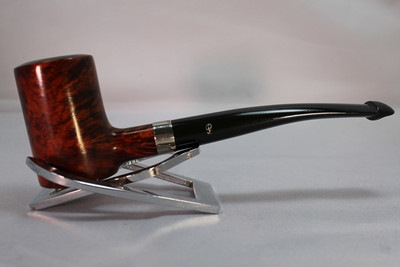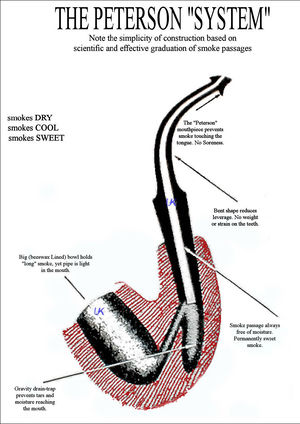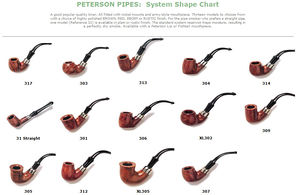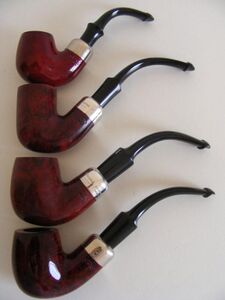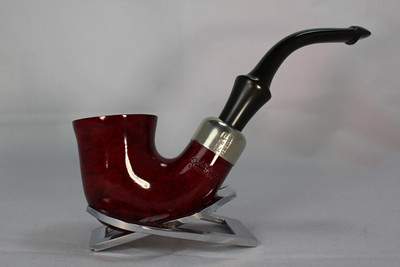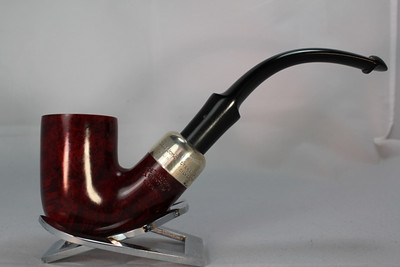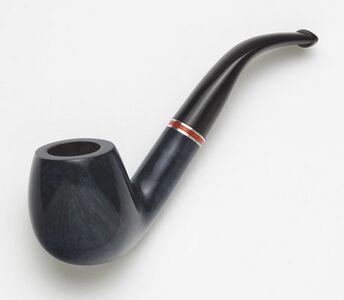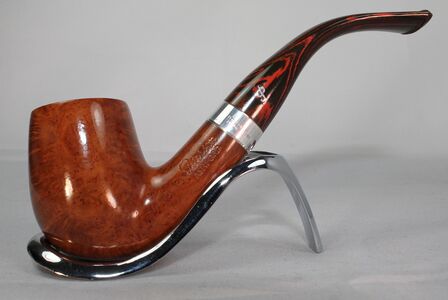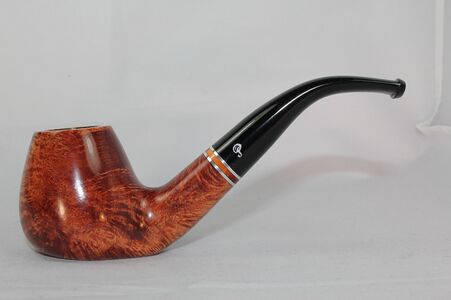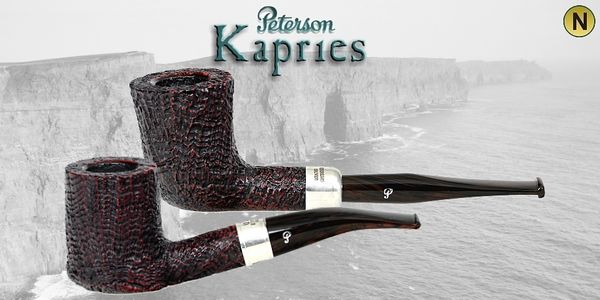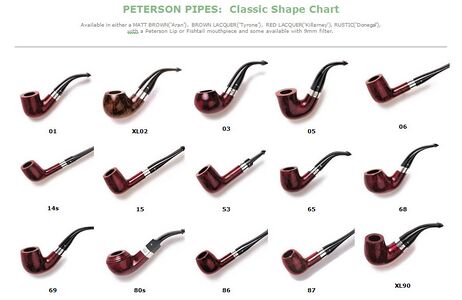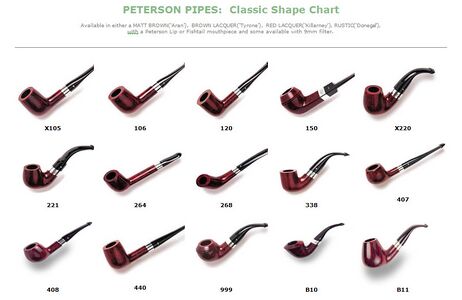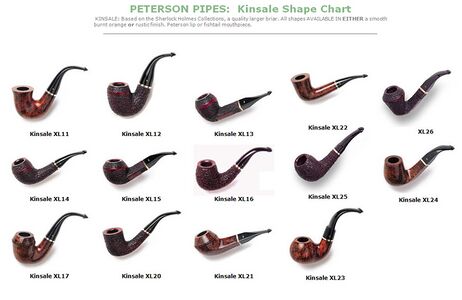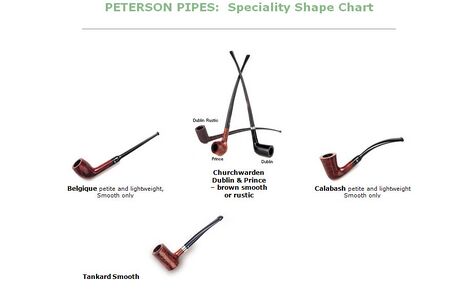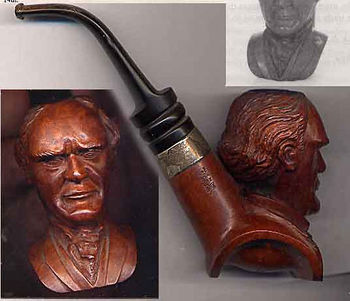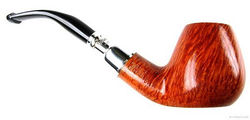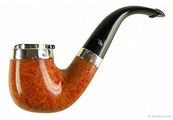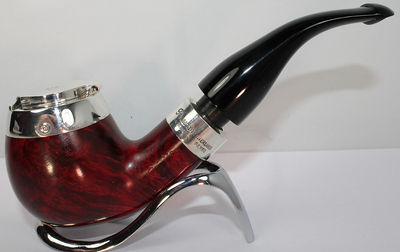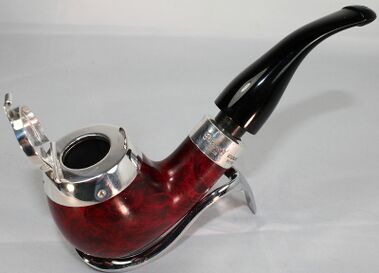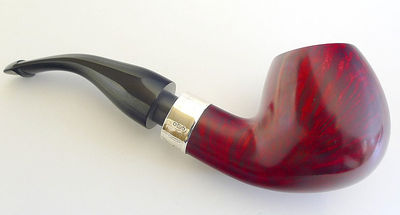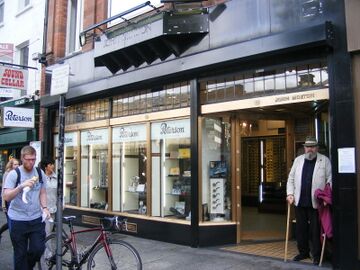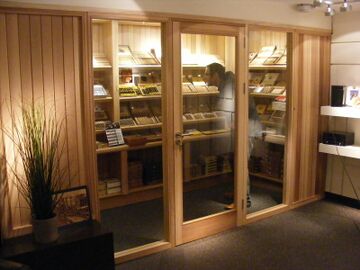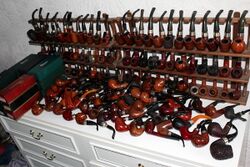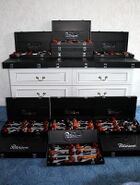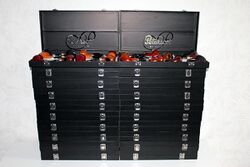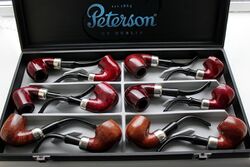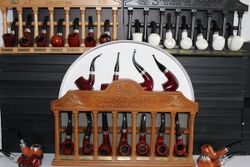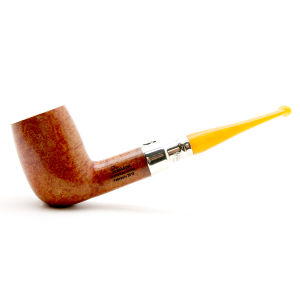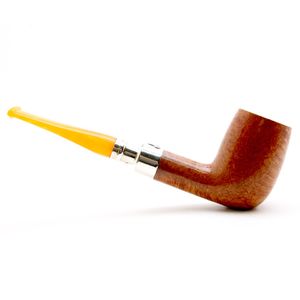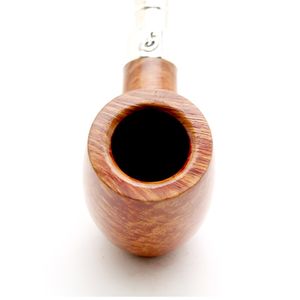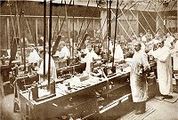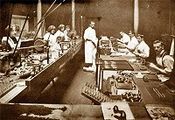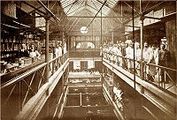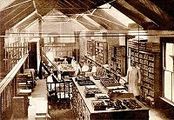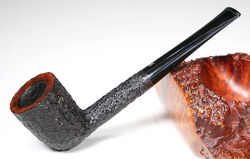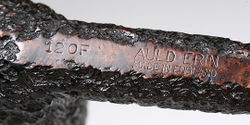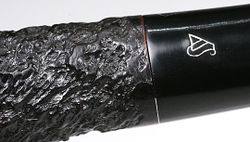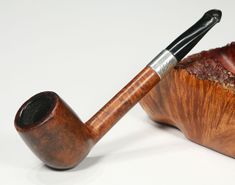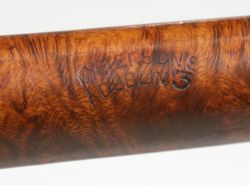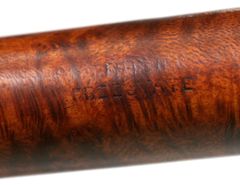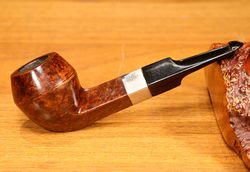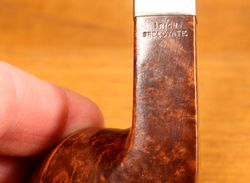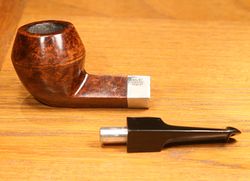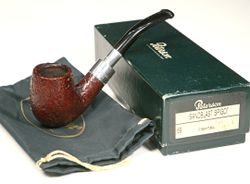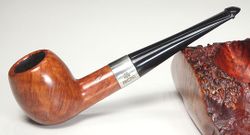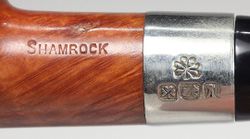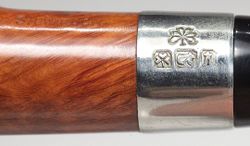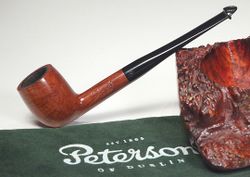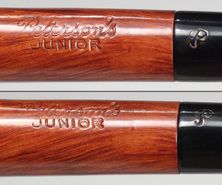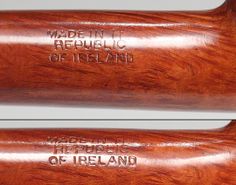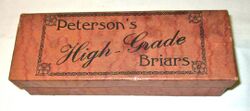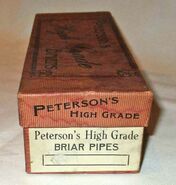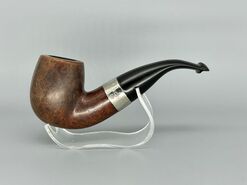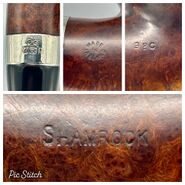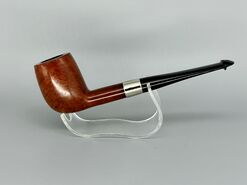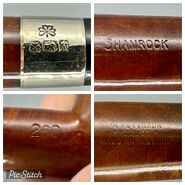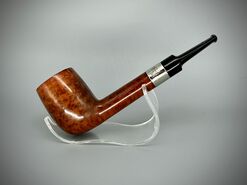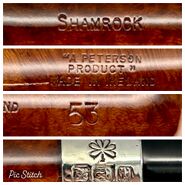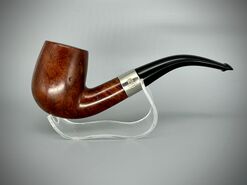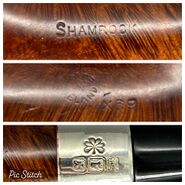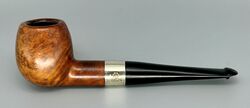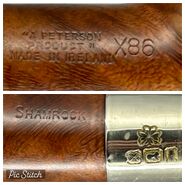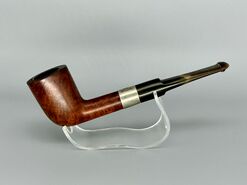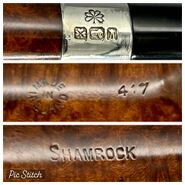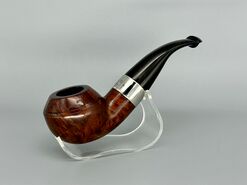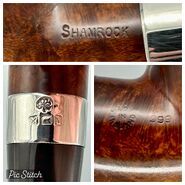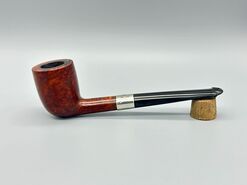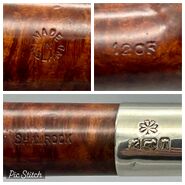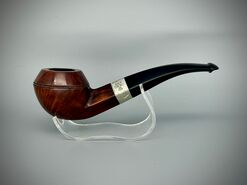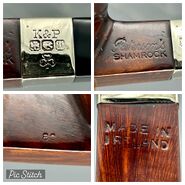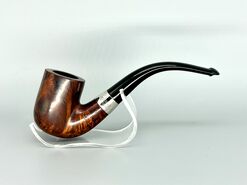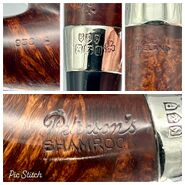Peterson
The Peterson Pipe Chronicles written primarily by Jim Lilley which follows is now dated and contains inaccurate information. We have engaged Mark Irwin, who along with Gary Malmberg, wrote the definitive tome on the subject of Peterson Pipes and their rich heritage and history entitled The Peterson Pipe, the story of Kapp & Peterson. Our hope is that Mark will spearhead a new Peterson article for us. Meanwhile, Jim Lilley's work below is a wonderful presentation by a man passionate about the brand, but please take the information with a grain of salt.. --sethile (talk) 09:13, 29 April 2020 (CDT)
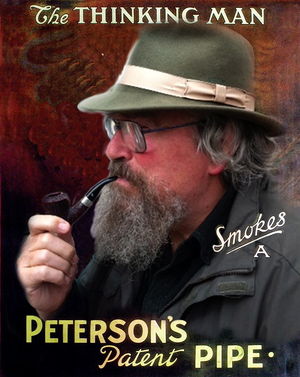
Peterson pipes are manufactured by Kapp & Peterson.
The Peterson Pipe Chronicles
by Jim Lilley
The Peterson Pipe
The Peterson brand of pipes are one of the most recognised in the world. They have been manufacturing pipes as a business in Ireland since the 19th century. Today the business is owned and managed by Tom Palmer from their head office at the Sallynoggin factory in Dublin, Ireland.
The commencement of the year 2015 will see the Peterson brand celebrating its 150th anniversary. This event will coincide with the publication and launch of a new detailed Peterson reference book, in tandem with a new commemorative pipe issue. It is hoped that the launch will take place in May of 2015 at the Chicagoland International Pipe & Tobacciana Show, held every year at the Pheasant Run Resort in St Charles, Illinois. USA.
A Brief History of the Development of The Peterson Pipe
1865 - 1889 The Pre Patent Period
The Kapp brothers, George and Frederick originally emigrated to Great Britain from Nuremburg in Bavaria. They first appear in the London trade directories in 1866, when they are listed as Meerschaum pipe makers of 98 Dean Street, Soho, London. They then parted company in 1869 and established their own pipe shops independently of each other.
At some time around 1874 Fredrick moved to Dublin.while brother George remained in London until his death 5 years later. Fredrick and his young family settled in the Rathmines district of Dublin. In July of the same year he opened a new shop in 53 Grafton Street selling Briar and Meerschaum pipes.
Around 1876 Charles Peterson, a young, newly arrived, Latvian immigrant was hired by Fredrick as a pipe craftsman, primarily to make custom ordered briar pipes. However Fredrick had not long to live and died in 1881. Exactly one year later Fredrick's widow also died. The business was then inherited by their 10 and 12 year old sons and was renamed Kapp Brothers after executors were appointed. Charles Peterson by then was the lead craftsman and managed the business on behalf of Fredrick and his wife's executors until the boys came of age. When the Kapp brothers did eventually come of age, Alfred Kapp and Charles Peterson bought out Christian's shareholding and renamed the business Kapp & Peterson.
Christian chose to become a Doctor and moved to England.
1890 - 1914 The Patent Period
Charles Peterson applied for a patent for an improved tobacco pipe on the 8th of August 1890. He was awarded patent number 12393 on the 16th of June 1891 for Great Britain and Ireland.This came to be known as the famous 'System Pipe' patent. The French patent, No. 210944 was issued to them on January 1891. The USA issued patent No. 519,135 on May 1st 1894.
In later years they went on to be successful in being awarded additional patents associated with their innovative pipes and pipe stems, including the famous P-lip patent in 1898.
1895 Kapp & Peterson moved to bigger premises at 111 Grafton Street Dublin and also opened a new depot in Broad Street London. 1900 K & P exhibited with great success at the Paris International exhibition winning several gold medals and accolades for the quality of their pipes. Fredrick Henry Kapp, son of Alfred and known as Harry, joined his father's business in 1914 at the outbreak of the first World War.
Peterson Pipe from 1899, courtesy Racine & Laramie Tobacconist.
1915 - 1949 The Pre Republic Period
This was a turbulent period for the company with the outbreak of World war 1 and the start of the Easter uprising in 1916. The K&P shop was extensively damaged during the military action at this time (see attached newspaper report).
Following quote by Kapp & Peterson.
"Kelly's, the well known Dublin landmark at the corner of Sackville Street and Bachelor's Walk, one of the most shot at and fully punctured premises in Dublin, was in our possession practically before the smoke ceased over the ashes of our fine shop under the Metropole Hotel. This was one of the most sensational business captures arising out of the Rebellion."
Around 1916, Peterson began stamping their pipes "Made in Ireland" in what is referred to as a block format.
Charles Peterson died shortly after retiring and moving to Hamburg in Germany in 1919 where he is buried. The original 1890 'system' pipe patent expired at around this time.
The Irish free state came into being in December 1922. The Free State Era was from 1922 through to 1937.
Peterson followed with a stamp of "Irish Free State" in either one or two lines, either parallel or perpendicular to the shanks axis and extremely close to the stem. Ireland was a republic in all but name. Eventually the Irish people voted for a new constitution in 1937 and Ireland then formally became Eire (Ireland in Irish). The Made in Eire era stamps were from 1938 through till 1941. Peterson now stamped their pipes with "Made in Eire" in a circle format with "Made" and "Eire" in a circle with the "in" located in the centre of the circle. This was used during the years of 1938 - 41. Later they stamped their pipes with "Made in Ireland" in a circle format 1945-1947 and still later with "Made in Ireland" in a block format 1947-1949. The "Made in Ireland" block format came in either one line or two lines. The Republic of Ireland was formed on 17 April 1949.
1950 - 1989 The Republic Era
From 1950 to the present time, the stamp for this era is "Made in the Republic of Ireland" in a block format generally in three lines but two lines have been used with or without Republic being abbreviated.
During the 1950s and 60s the Kapp & Peterson company was still in the ownership of the Kapp family. However 1964 saw the retiral of the company Managing Director Frederick Henry (Harry) Kapp.
In the 1960s Peterson hallmarked all gold mounted pipes but apparently they used their own marks on silver. This practice stopped at the end of that decade when they started to have all silver bands hallmarked. In 1966 a "Jubilee " fourth hallmark was introduced, only for that year, to commemorate the fiftieth anniversary of the Easter Rising of 1916. Designed as a hand holding a flaming sword in Irish "an Claíomh Solais" or "sword of light" the mark bears the date 1916 to the right above and 1966 to the left below. An Claidheamh Soluis (Old Irish spelling), this was hallmarked with the letter Y. This very unusual and special date mark has in recent years become very scarce, mainly because it was only used for that year. Pipes that were marked thus, are much sought after by Peterson pipe collectors.
1969/70 – The 'Made in England' stamp was discontinued with the closing down of the London based factory. Although Peterson has always prided itself in being an Irish made pipe, Peterson had also maintained a pipe factory in London since 1899.
English made Peterson pipes actually spanned the period between the pre Republic and Republic eras.
In 1899, Peterson opened the first in a series of several successive shops in London, England, that lasted until the late 1960s/70s.
- 1899 – 53, New Broad St. E.C.
- 1910 – 7, Hills Pl., Oxford St. W.
- 1915 – 21, Mortimer St. W.
- Finally moving to 74/77 White Lion Street until 1970.
So the English Era, for a simplified date, will be from 1899 through to around 1970.
The stamps Peterson used in London are:
- Made in England block format
- Made in England circle format
- Made in London
- Made in London England
- Simply, London England
- London Made over England block format
- Great Britain
Harry Kapp died on 20th February 1972. Shortly after, 1973/4 Kapp & Peterson merged with Tennant and Ruttle and the name of the company changed to Peterson Tennant. It was subsequently taken over by James Crean Ltd, but later the manufacturing concern was separated from the rest of the company and began trading once more under it's historical name of Kapp & Peterson.
During the 1970’s Peterson had a large display of pipes in the Shannon Airport Duty Free Shop for passengers. These were on display in a floor cabinet measuring approximately 6’ x 3’. Shannon airport outlet sold a considerable amount of pipes during its period of existence, covering all qualities, from the basic entry level Aran series up to the De Luxe Systems. They also stamped some mid range pipes with the mark 'SHANNON'. This was only for pipes issued and sold from Shannon airport and was not the same as the present day Shannon series.
With Ireland's joining of the European Community in 1973, a fourth miniature hallmark representation of the Celtic Glenisheen collar was added to the right of the date stamp for that year, hallmark letter F.
In 1975 Peterson issued the Centennial Limited Edition 1875 - 1975. The Peterson Centennial pipes, were released in celebration of 100 years of the company's pipe making. Two pipes were issued, 100 of each shape, a sterling silver banded straight and a bent shape 69, both were offered for sale individually.
In 1979 and 1980 Peterson commenced production of the Mark Twain gold banded numbered limited edition, numbered 1 through to 400. The pipe proved to be so popular that the number was quietly increased to 1000. They sold originally for around $350. The issue was such a great success and prompted further production of more pipes in 1981 to satisfy demand, with the Mark Twain second numbered silver banded edition, numbered 1 through to 1000, each in special presentation boxes. Some were also issued with limited edition pewter statues of the famous author.
Peterson then went on to produce more non limited versions of the Mark Twain pipes, this time without numbers, from 1983 through to 1989.
In 1985 there was a 3rd numbered limited edition of 1000 pipes issued to commemorate the writer's 150th birthday anniversary.1835 – 1985. These were all gold banded and in a special presentation box in the shape of a Twain book. There must have been a fourth production of Mark Twain pipes, for there is evidence of Mark Twain pipes with silver dates for the 1990s.
In 1988 Peterson decided to issue a special Millennium Edition set of two pipes commemorating the City of Dublin's 1000 year founding (9881988). Hallmark letter C.
The Peterson Manx (Laxey Pipes Ltd.) Isle of Man factory partnership ceased operation about 1981 and the production of all African Meerschaum pipes was moved to Dublin and continued there until 1986.
1987 The Issue of the first Sherlock Holmes Series. Probably the most famous Peterson issue/series of pipes.
The 'Original' series was introduced piece meal, every 6 months a new shape until the 7 day set was complete. The same procedure was later adopted for the next series, Return of Sherlock Holmes.
The second issue was called 'The Return of' and was based on the success of 'the Original', with seven additional new shapes and dedicated wooden rack being created. All similar to the first issue, with XL bowl sizes and similar sterling silver bands with the SH stamp.
There was also a miniature version of Sherlock Holmes pipes issued around the same time. It was named the 'Junior' Sherlock series. These were smaller bowled pipes at around two thirds the size of the originals and replicated those shapes.
1990 - Present, The Palmer Era
Tom Palmer, a charted accountant by profession, bought the Peterson business in the early 1990s in partnership with some other investors, he eventually bought them all out in 1995.
On looking back over the previous Peterson history, Tom considers that most of the changes which he has initiated between 1995 and the present, came in the very large extension to the modern pipe range and the constant issuing of new shapes and series. He considers that at the end of the day, a pipe is a consumer product, loosely defined and the consumer wants something new every so often.
Tom also believes that, ”the major changes have been refocussing our outlook on the smoker and given him variety and something to look forward to every year."
"We have always stayed close to our roots –our pipes are still seen as 'traditional' and I think that this is very important”. This philosophy is seen in evidence each year now with enthusiasts eagerly awaiting the annual issue of new pipes, tobacco and accessories.
Patent Era Pipes
If I was asked if there was one single reason that motivates me to collect Peterson pipes, I would most probably respond that it was their distinct and marvellous design history. Which to my mind, as a self confessed old romantic opens a portal to more elegant times past and established Peterson as one of the forerunners of distinctive classic pipe designs of today. I must admit I am really into this particular period of Peterson's pipe production and the pipes that were produced during the so called Patent era. In my humble opinion they are elegance personified!
Whenever I go through the old Peterson catalogues, it is like being a big kid all over again, drooling over illustrations and line drawings of pipes which I long to hold and admire. Owning such pipes is like having access to miniature time capsules.
1898 Lion Head Meerschaum, Courtesy Jim Lilley collection[2]
- Illustrations from Peterson Patent catalogues from around 1900
The original patent No.12393 was issued to K&P in Great Britain and Ireland on Aug. 8, 1890, and in France Patent No.210944 on Jan. 22, 1891. On May 1, 1894, U.S. Patent 519,135 was issued to Peterson for his unique construction of a pipe and mouthpiece, described as a “certain new and useful Improvement in Tobacco-Pipes”, that’s come to be known as the world famous Peterson 'System' pipe. In 1898 another of Peterson's innovative pipe inventions became available, the Peterson-Lip (P-Lip) mouthpiece, designed to offset the inhaled smoke to the roof of the mouth, thus avoiding tongue bite.There were several other similar patents awarded to K&P at around the same period (1900s).
- Illustrations of some of the various original Patents awarded to K&P
For collectors the Patent Era appears to have been from K&P's formation in 1890, until the expiration of the patent; through to approximately 1915. The late Mike Leverette in his 'A Peterson Dating Guide' extended this period to 1922.I believe this was purely to take cognisance of the P-lip patent which expired at around this time.
I would suggest the period 1890 to 1915 is the true 'Patent era'. From my humble observations the Patent stamping on pipes from that time, were more apparent and attributable with some degree of accuracy. Peterson pipes made during the majority of this period had no "Country of Manufacture" (COM) stamped on them. However, later around 1916, they began stamping their pipes "Made in Ireland" in a block format.
Something Special
Recently I acquired a wonderful and very unique Peterson pipe. The pipe was in need of some restoration, as its original stem was missing. It is an 1896 bent Patent Deluxe.The original saddle stem which was missing, was probably an Amber one.
So what is so special apart from its age? Well, it is otherwise in pristine un-smoked, brand new condition, as fresh as the day it came from the factory. The pipe is probably the oldest un-smoked Peterson in existence!!
My recent enquiry to Peterson's Dublin factory, has born fruit, those magicians have just returned the pipe with it's newly restored, made to measure, black acrylic saddle stem. I am very pleased with the new replacement stem, as I consider this to be a very significant pipe from Petersons wonderful past.
Here are photo's of this marvelous unique pipe, now complete once more.
A unique Victorian Peterson Pipe
Occasionally I am amazed at the rare and unique Peterson pipes that surface. The hallmarks on this specimen are English (Birmingham) and dated the pipe at 1893, (date letter T). I have seen a few patent Pete's over the years, however this example is a first for me. The most obvious characteristic is the magnificent silver fretwork which encases the briar bowl. Such skilled silver-work was typical Victorian high-end surface embellishment, typical of the time. It shows intricate show stopping art, through the antique floral and leaf decoration. The stem is well worn and damaged and the case was a bit grubby. But hey! it is 119 years old!! I am happy with it. It is a very rare example of an art form, not normally associated with early Petersons and as such is a prime candidate for the Sandpiper Peterson Museum. See photos below:
- More Patent Era Pipes:
- 1895 Peterson's Patent, Courtesy Dennis Dreyer Collection
- 1906 Peterson's Patent with Original Amber Stem, Courtesy Dennis Dreyer Collection
- 1908 Peterson's Patent, Courtesy Dennis Dreyer Collection
Pre-Republic Era Pipes
The pre-republic Peterson's are often considered to be rather special by Peterson pipe smokers.They hark back to a time when quality briar was in abundance and craftsmanship was of the highest level. Like all collecting desirables, pre-republic pipes are now relatively hard to come by, with availability declining with each passing year. The amazing thing that I find with pre-Republic's is the consistently high smoking qualities that they show, regardless of being a high or low grade issue. No it is not that I am looking through rose tinted glasses and being sentimental, they really were very well made. I base my judgement on owning and smoking quite a few of them.
For the purpose of this exercise and bearing in mind the eccentric vagaries of Peterson nomenclature, I am suggesting that an acceptable criteria or starting point for when the Pre Republic era begins and ends, requires a short historical resume.
The Irish Free State came into being in December 1922. The British sovereign, as King of Ireland, was nominal head of state, but Ireland was a republic in all but name. An entirely new constitution was voted by the Irish people in 1937, with provision for a President Of Ireland as head of state. Therefore, Ireland became a republic in 1937, but was not called that. It was called simply EIRE (Ireland in Irish). When, in 1945, the British government inquired of prime minister Eamon de Valera weather he intended to proclaim a republic, his answer was: "we are a republic", having refused to say so before for eight years. This was news to the British: when George VI ascended the British throne in 1936, he had been crowned King of Ireland, as well, little knowing that there no longer was a Kingdom of Ireland!
As usual when trying to get accurate facts in regard to Peterson history, something will jump up and get in the way. They are missing many of their records. The following is the best that we can do for a guide to the myriad markings during the period 1922 – 1949. Prior to 1920 it was rare for a country of origin to be stamped on the pipe, just Peterson's Dublin on the band. After 1921/22, if it is stamped "MADE IN IRELAND" and the "Made in" is stacked over "Ireland" or "MADE IN EIRE" or several other forms, it was made between 1922 and 1938. A considerable number of Peterson pipes were stamped "Irish Free State". From about 1930 to 1949, most of the pipes (those which were stamped) were stamped "Made in Ireland"." If the stamp reads "MADE IN IRELAND" in a circle, the pipe was made between 1939 and 1948. These are all "prerepublic" pipes. I can tell you that the mark "Irish Free State" was adopted in 1922;and replaced by "Eire" in 1937 and then by "Republic of Ireland" in 1949.
Phew! So there you have it. easy and straight forward, oh yeah! Peterson initially graded their mass -produced System pipes, i.e., regular catalogue pipes (in descending order) "Deluxe", "First Quality", "0" grade, "2nd grade", and "3rd grade". You will also find old Peterson Systems stamped System 4 or System 5. The shape number is also indicative of briar quality; for example, 364 is Peterson's 3rd quality shape number (the 2nd quality sister pipe is a 314).
Sometime in the 1940s they introduced the "Premier" and "Standard" stampings. The "Premier" falling just under the "Deluxe", and the "Standard" becoming the former "2nd grade" quality. The stampings on the silver bands are "faux" hallmarks and are just decorative symbols of Ireland ... a Shamrock, a wolfhound, and a castle or tower. SYSOP's note: The example below is marked STERLING SILVER, so my guess is the hallmarks would be genioun in this example:
- Peterson Premier example and details, courtesy Doug Valitchka
In regard to the silver and nickel markings of this period, well nuff said, it is a blooming minefield!
Hallmarks are only required on precious metals not nickel. Also a pipe made in England must meet English requirements which now (and for a number of years)are only 925 for sterling. This is an EU standard I believe. The shamrock, wolfhound and tower are not hallmarks. Dublin hallmarks for sterling are Hibernia, crowned harp and a letter denoting the year. They are still required for silver and gold in Ireland.
On the faux "hallmarks" v Dublin silver hallmarks. There are many Peterson pipes with sterling silver bands that do not have hallmarks though, even some in the Premier and Deluxe grades.
- Pre-Republic Era examples, courtesy Huang Kao Chen collection
- Peterson's London & Dublin Special Two-Pipe Set Made in London ca. 1947, Courtesy Dennis Dreyer Collection
- Peterson's Dublin & London Deluxe Two-Pipe Set Made in Dublin ca. 1947 (non-hallmarked sterling mounts), Courtesy Dennis Dreyer Collection
- Peterson System Clay c. 1940, courtesy Racine & Laramie Tobacconist
Courtesy Racine & Laramie Tobacconist
Courtesy Racine & Laramie Tobacconist
Republic Era Pipes
At the start of the 1950s, all pipes at Kapp & Peterson were stamped with “Made in the Republic of Ireland” stamp and also starting off the decade with the hallmark letter I on any silverware.
Apparently nickel was scarce in those days, just after the war and the company tried to use aluminium instead. Needless to say It was not very successful.!
I have adapted this section concentrating on the period following 1950, the made in the Irish Republic era and the different near modern Peterson grades and series, which should bring us up to the time period from the 1990s onward.
Again this was a time of great change for the brand, the company having changed ownership on several ocassions. However it was also one of great creativity, with the introduction of several commemorative series and some new literary character series of pipes that would leave a very lasting impression on the pipe smoking fraternity.
With Ireland's joining of the European Community in 1973, a fourth miniature hallmark representation of the Celtic Glenisheen collar was added to the right of the date stamp for that year, hallmark letter F.
In 1975 Peterson issued the Centennial Limited Edition 1875 - 1975. The Peterson Centennial pipes, were released in celebration of 100 years of the company's pipe making. Two pipes were issued, 100 of each shape, a sterling silver banded straight and a bent shape 69, both were offered for sale individually.
The first series to make a real global impact during this period was the Mark Twain pipes introduced in 1979.The issue of this series has become the stuff of legend for Peterson.I think they were taken aback and were unprepared for the series's eventual worldwide popularity and success.
Throughout the early eighties they made several batches of so-called numbered limited editions.Culminating in 1985 with their Mark Twain 150th Gold anniversary.
1987 saw the introduction and Issue of the first Sherlock Holmes 'Original' Series of pipes. The Sherlock Holmes series is probably the most successful series of pipes ever introduced by Peterson in terms of numbers. It was first issued to honour Sir Arthur Conan Doyle's famous fictitious detective character, Sherlock Holmes. Holmes is perhaps the most famous pipe smoking character in fiction.
In 1988 Peterson decided to issue a special Millennium Edition set of two pipes commemorating the City of Dublin's 1000 year founding (9881988). Hallmark letter C. The first pipe was a Dublin shape (what else!) and an Oom Paul. Each pipe was sold individually featuring a special sterling silver hallmarked band and came with a ribbon wrapped parchment scroll in a blue presentation box.
The Captain Pete Pipes. At the end of the eighties just as the Sherlock Holmes range was being issued, Peterson reintroduced the modern Captain Pete series. The pipe bowls on these modern versions are all based on the Sherlock Holmes shapes.
The modern Captain Pete line available from Cup O'Joe's is an exclusive issue by Peterson for the US retailer. They are XL size pipes that mirror the Kinsale and SH series of pipes with slightly shorter plip mouthpieces.
Previously there were two separate issues of pipes which had the Captain Pete name. "Captain Pete" and "Captain Peterson" were two Peterson's subbrand issues made in England and were also sometimes manufactured in Dublin until the late 1960s when the London premises closed. I have a London made 1940s issue Oom Paul shape Captain Pete in my own collection. A fine pipe it is!
The Tom Palmer Modern Era of Pipe Production. 1990 - Present
When Tom Palmer bought the Peterson business at the beginning of the nineteen nineties', he adopted the policy of "if it ain't broke don't fix it". Basically sticking wisely to what the business had historically been famous for, good quality, value for money, popular, classic shaped pipes.
Peterson had been around for over 120 years before he got involved so he decided to tread carefully before making any real major changes.
On looking back over the previous Peterson history, Tom considered that most changes should come in the extension to the main pipe range and with the regular issuing of new shapes and series. He considered that at the end of the day, a pipe is basically a consumer product and the consumer does like something new every so often.
A consequence of this policy has, in my opinion, led to a rather complex list of new and established lists of series.
The following lists and groupings are hopefully an easier and more practical method, making it much simpler to come to terms with the huge array of Peterson's modern pipes. This can be rather complex for the novice, as Peterson continue to annually introduce new issues and remove older ones. Over the years I have found this to be a recurring problem for new entrants to the world of Peterson pipes. Regular Email correspondence requesting clarification on grades has shown me that it begs clarification. I have attempted to make this process somewhat easier for those not familiar with the various ranges, by adjusting the current system of Petersons nomenclature in line with 4 simple qualitative grouping criteria. For example with Group 1 being the highest in qualitative and monetary value terms, the others then in descending order of quality, cost etc.
Group 1: Straight Grains, Gold and Silver Mounted
Straight grains: Peterson's catalogue states that these pipes have Briars which are carefully examined for imperfections and have selected Briars of exceptional grain, known as Straight Grains, they are carefully selected, hand crafted and the increasingly rare skill required to make them is unique. Craftsmen shape, turn, sand and polish 150 year old roots of the Erica arborea tree/shrub. Only a very limited quantity of Straight Grains are available in any twelve month period. To my mind the sight of a beautiful natural straight grain bowl is truly a sight to behold. Pure class, they can be spotted a mile off! When coupled to the traditional high class Peterson gold or silverwork, these pipes are in a different quality league. Considering that such quality pipes when available, can be bought for prices starting at around $400 and upwards, they are to my mind a real bargain.
Supreme Gold and Silver mounted: Exceptionally rich in grain, these pipes are also made from the finest briar and are almost as rare as the straight grains. Each pipe has a highly polished natural finish and is fitted with a slender gold or silver band. With Peterson lip or fishtail mouthpiece and available in most of Petersons classic shapes they are subject to the availability of suitable quality briar. Prices can vary between $330 and $850. Peterson craftsmanship at its very best.
- Straight Grains, Gold and Silver Mounted
Group 2: High grades
The pipes in this range are amongst the best and most select briars that Peterson produce. They vary in price from the Grafton, Rosslare Royal Irish and Silver Spigots starting at around $250. To the slightly more expensive Silver Caps and Lids, Plato, Royal Irish and Celtic Naturals and on up to $800 plus for Gold spigots.
Silver Caps & Lids: The union of top grade mellowed briar and hallmarked silver confection, combines to make this truly beautiful series. Using the highest grade bowls, the silver work is done by hand and fits the cap to each individual pipe. Available in most classic shapes with a Peterson lip or fishtail mouthpiece. Peterson also offer Silver Caps with a unique hallmarked silver hinged lid which is custom made to fit each individual pipe. These pipes are amongst the most spectacular and aesthetically pleasing of the Peterson higher grade pipes. Very photogenic and very collectable! My favourites, resistance is futile. Prices start around $300 and on up to $500. I reckon that this series offers the best value for money in the Peterson stable of pipes.
- Silver Cap & Lids
Plato: Peterson makes a very limited number of these Freehand pipes. So few, in fact, that many people don't even know they exist! Personally I am not a fan of Freehand pipes, to my eyes the are not aesthetically pleasing and are lacking the classic traditional lines that I find so appealing. I always feel that they look like unfinished rough briars waiting to be completed. However I do realise that equally there are many people that do like them. Measuring just over 3” from the heel to the apex of the bowl rim, 2” across and 6 1/2” long. Weighing a full 3 ounces, the pipes feel surprisingly light for their size. The pipes are chunky, but are well balanced. They provide a good dry smoke. The stem fits snugly and is removed without effort. The pipes have great hand feel and the thick walls prevent them getting to hot to hold. Prices vary between $350 - $450.
- Plato
Celtic: In my opinion the Peterson Celtic series of pipes are very handsome pipes. Everything about them seems well done, from the finish and the quality of the briar, to the Celtic knot work on the silver bands. There appears to be two grades of quality. Even in the basic one, the pipes are light, there are no obvious fills present and they smoke well, a quality briar, in natural smooth, green or ebony polished finish. Retailing for around $175 - $200 in the basic form.
Taking inspiration from Celtic art, stretching back over 1000 years. Peterson have created this series of pipes, the main feature of which, is the unique Celtic Knot design on the hallmarked sterling silver band.
The higher grade Celtic natural finish series of pipes is not cheap to purchase, being at the top end of the higher grade pipes. They usually retail at around $300 - $400, and similar in quality to the Royal Irish series, they are comparatively rare and scarce, with few retailers currently offering them for sale.
- Celtic
Royal Irish: The Royal Irish series of Peterson pipes is one of their lesser known issues. It should not be confused with the Rosslare Royal Irish. High grades, they sell for around the $300 - $400 range. I have long admired them as they epitomise the elegant shapes, style and quality of briar that I find particularly attractive. Initially I was drawn to a XL90 shape and then a XL02, both among my favourite shapes. Dressed up in their 'royal finery' they are nothing short of spectacular. Peterson's web site describes them along with the other higher grades as: “Only about 5% of our bowls are good enough to make this selection of pipes.
These special pipes, all of which are silver mounted, are rare and a limited number are available each year. Shapes can vary depending on availability of suitable raw materials”.
I know how scarce these are from having waited 612 months for mine to be made by Peterson, but it turned out to be well worth the wait.
- Royal Irish
Rosslare Royal Irish: Under the spotlight is the spectacular and unmistakable Peterson Rosslare Royal Irish series. Clearly identified and distinct from it's Royal Irish stablemate by the bright sterling silver mount at the end of the shank and on the stem. Most have the distinctive yellowgold variegated faux amber acrylic stem, all combine to create a striking and unique composition especially in the black sandblast contrast. The high grade Royal Irish series, differs from the basic Rosslare Classic series, which is priced around $115 and the higher grade Royal Irish at around $200 $250. Peterson claims that, “Only about 5% of our bowls are good enough to make this selection of pipes. These special pipes, all of which are silver mounted, are rare and a limited number are available each year. Shapes can vary depending on availability of suitable raw materials”. not so sure about the accuracy of some of that sales pitch, especially the rarity. I have never had any difficulty sourcing them. Most B&M's and Eretailers have them in stock, or can source them fairly quickly.
I have found that there is a clear dichotomy of opinion on the views of pipe smokers on the Rosslare series, they either 'love 'em or loath them'. Some find the orange/yellow Acrylic stem 'a bit over the top'. Personally I love 'em.
- Rosslare Royal Irish
The Grafton Series: Peterson state that “Only about 5% of our bowls are good enough to make this selection of pipes. These special pipes, all of which are silver mounted, are rare and only a limited number are available each year. Shapes can vary depending on availability of suitable raw materials”.
I have rarely seen this series of pipes for sale previously, it has been a complete mystery as to the quality of briar, finish and smoking qualities. Rarely is it mentioned on pipe forums.
So as is my wont, I set out to acquire a couple. The Grafton is rated by Peterson as one of their Higher Grades along with the Royal Irish and the Rosslare Royal Irish. I would also place it along with that other higher grade rarity the Celtic series. My first impression of them is that the briar quality is superb, with gorgeous graining. The pipes are not what I would call stand out stunner's. They ooze quality and are reservedly handsome, enhanced by the acrylic Cumberland stem. The bowl finish is tending toward a matt finish and not shiny like the recent trend. The natural Walnut finish harkens back to the comparable preRepublic bowls. The purchase price is around $300.
- The Grafton Series
Gold & Silver Spigots: The Peterson Spigot is characterised by a gold or sterling silver covering on the tapered end of the mouthpiece which complements the sterling silver band of the pipe. The Spigot style evolved from the practice of soldiers in earlier centuries who repaired broken pipes by sliding a used cartridge case over the shank and reinserting the mouthpiece. In this unique spigot finished pipe, Peterson craftsmanship perfect the union of finest quality briar and precious metals. The silver or gold is spun to shape and then fitted to the pipe.
These are amongst the most attractive and collectable pipes in the Peterson range of pipe issues. They just ooze quality. Prices start at around $200 and rise to $800 for the Gold versions.
- Gold and Silver Spigots
Group 3: Collections, Series
This is probably the most popular group of modern Peterson pipes for collectors, offering good variety and choice at very fair pricing.
Year Pipes, Commemorative and Limited editions: Each year Peterson's design and produce a select number of pipes in limited numbers to commemorate a particular year, subject or occasion. These products are particularly directed at the pipe connoisseur and collectors who can recognise the characteristics of these particular pipe examples, which are unique in material, workmanship and styling. Prices usually start at around $200.
- Year Pipes, Commemorative and Limited editions
Collections: Usually these popular themed collections of pipes are boxed. They vary in price from the Ebony and Ivory at around $300 and up to $1000 for the River, 6 pipe set.
- Antique collection
- River collection
- Irish sea collection
- Mark Twain collection
- Writers collection
- Golf collection
- Great Explorers collection
- River collection
- Castle collection
- Claret Collection
- Molly Malone Cockles and Mussels Collection.
- Iceberg Collection
- Collections
The Sherlock Holmes Series: Probably the most popular and successful series of pipes ever produced by Peterson. Including the Meerschaum version of the seven day sets. Both briar and Meers can be purchased etheir as individual pipes or complete seven day sets and stands. Expect to pay around $250 for briars and $300 for individual Meerschaums. The Adventures of Sherlock Holmes runs around $1000 for a 4 pipe boxed set. Complete 7 day sets and stands can be up to $1500 - $2000.
- The Sherlock Holmes Series
The Old English Collection: The old English Collection is no longer in production. It featured a set of 12 pipes, recreated using original classic designs from the 1930s and 1940s. Each pipe is handmade and mounted with goldplated sterling silver bands.
- The Old English Collection
Deluxe Systems: The handsome and very distinctive Deluxe system pipes, include the Darwin, Mark Twain and the Charles Peterson 140 year anniversary Pipe. These pipes are at the top of the 'system' series in terms of quality and finish. Each Peterson Deluxe is made from carefully selected, age mellowed root briar. In matt finish with hallmarked sterling silver mounts and a unique space fitting mouthpiece to allow for years of wear. They are available in a wide range of shapes numbered, as follows: 1s, 2s, 3s, 4s, 5s, 8s, 9s, 11s, 12.5s, 20s, XL5s, 20FB and 11FB. The pipes are well carved and construction, engineering and workmanship, is outstanding. The stems are well drilled and aligned. Silver work is excellent, finish very good, and the often maligned briar is of outstanding quality. The design is a very typically Peterson classic shape. Apart from the Darwin, the balance can be stem heavy, the bit is thick and chunky, especially in the larger versions. I also enjoy the sense of presence they give to the pipe, particularly if smoking in company with friends or strangers.
They have a sophistication about them. The smoking qualities are excellent, dry and cool. The draw is good, and the flavour is particularly great in new pipes. The Mark Twains are outstanding in this department. As for the aesthetics and ergonomics, I find some shapes much more attractive than others. Favourites for me are the 1s, 2s, 3s, the Mark Twains and the Darwin deluxe. As a clencher most are very good to hang, except the beautiful Darwin which is more of a 'hand holder.' The one weakness I find is the modern orange/golden colour, (the so called natural) it is, in my opinion, less attractive than that found in the older Walnut finish of the eighties. As far as value and cost is concerned, for the excellent quality finish, these are competitively priced at around $135 to $250 depending on size and briar grade.
For what it is worth, I reckon the Deluxes are probably the best value range of pipes that Peterson produce, both in terms of functionality and value. There is not a thing wrong with these pipes. Those who malign the brand because they're made by the hundreds using machines, are very wrong, in my opinion. I like them a lot and the bang for the buck is the best I've ever seen for new pipes of this quality.
The Deluxes are all excellent smokers. The Darwin, of course, is a truly outstanding pipe, its only "flaw" being that it's not a clencher. One particular aspect of this pipe that appeals to me most is its physical beauty and presence. They are a pipe like no other. For me, they also offer a bowl capacity that I like and a balance in the hand that I appreciate. They are well named Deluxe s for giving that special experience.
- Deluxe Systems
House pipes: Another popular Peterson system pipe variant, is the huge House Pipe. I believe the term house pipe, has come from the fact that they are just too big to carry around for some and too heavy to hold in one's mouth. The pipes are so large that you'll want to smoke them at home, settled into a comfortable chair for a very long session with a good book! I remember seeing them referred to as 'systems on steroids'!
These large hand made pipes normally retail for around $200 $ 400 depending on shape and finish. Varying from Smooth, Sandblast and Rustic finishes and Straight Billiard and Bent shapes. Extra large bowls. All with sterling silver bands. Finishes include terracotta and oak colours.
Over the years there have been a few large System pipes Produced by Peterson which could be considered to be included as 'House' pipes. In the early Peterson catalogues, circa 1900, they were advertising XXL systems which were similar in size to the modern 'House' pipes. Around 1990 Peterson were asked by a large UK retailer, i.e. Bonds of Oxford St. London, to commission the making of a special giant classic bent pipe, with dimensions of, length 17cms, bowl height, 6.1cm, bowl chamber depth 5.5cms, internal bowl diameter 2.1cm. This is a classic shaped Peterson with hallmarked silver ferrule in smooth and rustic finishes, plus options of tapered and saddle stems. In the early 1990s Kapp & Peterson made this giant, classic full bent, smooth pipe exclusively for Bonds of Oxford Street London. Bonds seem to have an endless source of New Old Stock Peterson pipes. I am always intrigued by these pipes when they arrive by post. Inevitably they come in their original packaging and to my mind, are a window back in time. I enjoy the box and contents as much as the pipe.
I had seen this pipe on many occasions when I had previously visited Bonds E bay site. I have always been attracted to it and admired the classic shape, size and finish. They were offering the same pipe in various finishes and stem fittings. However I preferred the smooth tapered fishtail. I am a sucker for large bent Pete's. Just my taste. However it was not cheap at around $355. Having had the opportunity to see the pipe 'in the flesh', I am amazed at the quality, feel, looks and the smoking performance. Yes you heard right I smoked it! Normally with the newer unsmoked high grades that come into my collection, they remain un smoked. However I made an exception with this beauty and boy it was worth it.
- House pipes
Darwin Series: The new Darwin series of large, sturdy, stout pipes, feature the same military mount and ingenious moisturetrap found in other Peterson System pipes. Recently released just in time to celebrate the sesquicentennial of Charles Darwins "On the Origin of the Species". Darwin pipes come in the Sandblast, Ebony, Rustic, Smooth, Red, Deluxe and Premier finish. The shape form is the new B42; a handsome and muscular bent apple that appears to have been specially created for the series.
I have to admit that I am smitten by this new series from Peterson. They epitomize my ideal pipe, both in looks and functionality. The Deluxe in particular is a very handsome specimen. I also enjoy how tactile these pipes are, they snuggle in beautifully in the hand. I am a big guy so it may be something to do with scale. With the pipes being so big I would imagine they will not be to everyone's taste. My own view is somewhat biased, the Darwins were probably tailor made with me in mind!! I find them brilliant smokers, the bowls never heat up, because they are so large and the shape is so very comfortable for longer periods of smoking. Personally I give them a slight edge over the Mark Twains in that department. The official Peterson web site lists only four types, Deluxe, Premier, Rustic and Smooth. I have managed to source three others, Red, Ebony and Sandblast. Expect to pay around $230 for a Deluxe Darwin.
- Darwin Series
Kapp Royal Series: The Kapp Royal series is a relatively new one, but has a well establish history in Europe. They are a handsome colourful series with a good quality natural stain briar and bright orange Lucite stems and occasionally Cumberland. The stems are mainly military mounts which are secured by sterling silver ferrules to give a well balanced aesthetically pleasing finish.
- Kapp Royal Series
Group 4: Basic Entry Level Pipes
In this group you will find the basic entry level pipes which many smokers desire and are most comfortable with for every day and rotation use. The two most famous and popular issues probably being the System and the Classic shape pipes. All of the pipes in this group can be purchased for relatively little cost and probably accounts for the majority of Petersons world wide pipe sales.
Holiday and Calendar Date pipes: 4th July - first issued in the late 1990s with production of this series ending approximately 2007. Made for the US market to celebrate Independence Day. Expect to pay around $100.
Saint Patrick's Day: first issued, Mid 1980s (was previously know as Flag Pipe). Each year Peterson launches a range of pipes to celebrate Ireland’s national holiday when everyone in the world wishes to be Irish. Most years they go with a very Irish colour – a shade of green. Prices start around $80.
Fathers day: first issued 2010. A classic pipe with a Walnut finish with matching ring. Available in selected classic shapes with fishtail mouthpiece only. Price around $100
Christmas Pipe: Originally commissioned by the American retailer "Cup O' Joes", Peterson's first ever Christmas pipe! Like the Peterson Year Pipe, a special limited edition, featuring a smooth finish, fishtail mouthpiece, and a Sterling Silver Band with a Christmas tree stamped on it. The bowl was stamped with the Peterson logo and "Christmas 2009". Price around $150.
Each year since then, Peterson has continued to issue through it's many global retailers, a Christmas pipe, now known as a “Holiday Season” issue.
- Christmas Pipe
Speciality pipes: A selection of unique quaint shaped pipes unique to Peterson.
Belgique and Calabash: Two petite and lightweight Peterson shapes crafted with all the care and know how of century old pipe makers. From finest quality briar in red polish and rustic finishes with fishtail mouthpieces only. Prices around $60 to $85.
Tankard & Barrel: Two attractively shaped pipes finished in red polish or rustic. A quality briar fitted with a nickel mount. Available with Peterson lip or fishtail mouthpiece. Prices start from $45.
- Tankard & Barrel
Churchwarden: One of the earliest pipe shapes and it still remains popular. The overall length of the mouthpiece ensures a pleasant cool smoke, particularly suitable for an evenings relaxation. The Dublin, Billiard and Prince shapes come in smooth or rustic finish are available with long slender fishtail mouthpiece only. Priced around at $100.
- Churchwarden
System Pipes: Perhaps the most notable design from the Kapp & Peterson factory was Peterson's famed 'Dry System' pipes. The original patent was issued in Great Britain and Ireland on Aug. 8, 1890, Featuring a small reservoir intended to collect moisture before it reaches the smoker, the 'System Pipe' makes for a cool smoke that minimizes tongue bite, the bane of every pipe smoker. Indeed, it is on this ground breaking design that the worldwide reputation of Peterson grew.
In 1898 another of Peterson's innovative pipe inventions became available and was also patented. the PetersonLip (PLip) mouthpiece, designed to offset the inhaled smoke to the roof of the mouth, thus avoiding tongue bite. The famous P lip stem incorporated into the system pipes mouthpiece directs the smoke flow through a small hole at the top of the stem to the roof of the mouth.
Generally when pipe smokers get together and discuss the system pipes they are inevitably divided as to whether they like or dislike them, in particular the P lip stem which has many detractors. The main criticism being that in directing the smoke to the top or roof of the mouth, this can become tender and sore after a while through the concentration of hot smoke. The cleaning and maintenance of the System pipes also appears to be problematic to some pipesters. Often the criticism is in regard to the 'infamous' pipe cleaner test, i.e. can a pipe cleaner be passed down the stem opening and out the opposite end easily and without obstruction. Of course smaller pipes are more problematic than the larger ones, coupled to the stem shape being more angular in full bent examples. I have never really found this to be too much of a problem as I will use the smaller finer pipe cleaners such as those made by Falcon, which seem to pass easily. Personally I enjoy my System Pipes, to me they epitomise the true essence of Petersons heritage and style. Being a habitual clencher I find the P lip ideal 'anchorage' for dangling from my mouth, particularly as the majority of my pipes are bent s. I suspect that the majority of my weekly pipe smoking activity is with 'Systems', I love em!
The Peterson System pipes are the standard bearers of the Peterson pipe family, famous for the excellent smoking pleasure they provide. Often imitated but never equaled, the Peterson System smokes dry, cool and sweet, thanks to the scientific effectiveness of the original design. The heart of the System is the unique graduated bore in the mouthpiece. This makes the suction applied by the smoker 15 times weaker by the time it reaches the tobacco chamber. The result is that all the moisture flows into the reservoir and, thus cannot reach the smoker's mouth. The Peterson Lip further enhances the effectiveness of the graduated bore by directing the flow of smoke upwards and away from the tongue. This achieves a uniquely even distribution of smoke and virtually eliminates any chance of tonguebite or bitterness. Furthermore, the shape is contoured so that the tongue rests comfortably in the depression under the opening. Each "PLip" mouthpiece is made from Vulcanite. For the Peterson System pipes to work properly, the stem/tenon has to have an extension, the tip of which will pass by the draft hole from the bowl and into the sump. Upon the smoker drawing in smoke, this extension then directs the smoke down and around the sump to dispense a lot of the moisture before the smoke enters the extension and stem. On the System Standards and other less expensive systems, this extension with be made of Vulcanite turned integrally with the stem. On the more expensive System pipes this extension will be made of metal which screws into the Vulcanite stem. This extension on the earlier pipes will be of brass and the newer pipes will be of aluminium. Most smokers not knowing this function of the metal extension, assumes that it is a condenser/stinger and will remove it as they do with the metal condensers of Kaywoodie, etc. Should you have a System pipe with this metal extension, do not remove it for it will make the System function properly and give you a dryer smoke.
Another feature of the Peterson System pipe that helps in removing moisture is the stem itself. It will have a relatively small draft hole entrance at the extension which will open out rapidly and then closes back down near the bit. Of course these varying diameters have smooth transitions.
The idea behind this is; the smoke leaving the smaller diameter and entering the larger diameter will expand and slow down, thus dropping more moisture before entering your mouth. To some people the cleaning of system pipes can appear to be problematic, in fact they are in most cases easy to clean. A pipe cleaner dipped in alcohol will do a fine job of removing any dried tobacco juices in the mouthpiece or shank. If there is any difficulty with the pipe cleaner accessing the narrow Plip, I would suggest using the finer narrow pipe cleaners made by Falcon, which are still widely available. The sump pit on a system pipe can be cleaned with a QTip swab or piece of rolled up paper towel, likewise preferably dipped in alcohol before use. If you suspect the sump pit contains a significant amount of liquid, remove the mouthpiece, dump the liquid, and reassemble. I would recommend running a pipe cleaner down the stem, as far as it will go, immediately after finishing a bowl, but disassembly and thorough cleaning can wait until the next day or any other convenient time. Most of the standard systems are made from good quality briar. All are fitted with nickel mounts and army style mouthpiece. There are fourteen models to choose from, with a choice of highly polished or rustic finish. Nearly all are bents, except for one straight model, shape reference 31. As well as the traditional Walnut finish, there are also additional colour choices with red and ebony, plus rusticated and sandblast. There is also a higher grade choice in the Premier bowls. Prices can vary considerably from around $88 for a basic finish System and up to $250 for a Deluxe.
- System Pipes
Classic Range: The following is a list of the pipes which fall mainly into the Classic Range. These are primarily Petersons basic 'entry' level pipes, which can vary considerably in price between $55 and $200, depending on the finish i.e. smooth, sandblast, rustic and if there is any nickel or silverware adornments. The list includes pipes which are currently identified on the main Peterson web site. The shapes are mainly based on those thirty three examples shown on the main web 's Classic Shape Chart. The list is constantly changing as more new pipes are announced each year. All of the following series fall into the Classic range of pipes quality and will most certainly have some bowl fills or slight flaws. As previously stated, some of these listed pipes are unique to and only available in Europe or the US. Others are simply no longer in production.
- Aran
- Around The World
- Ashford
- Blackrock
- Captain Pete
- Cara
- Cashel, Rock of.
- Castle
- Celtic
- Claddagh
- Cork
- Dalkey
- Dingle
- Donegal, Rocky
- Dracula
- Dublin Castle
- Dublin Filter
- Dunmore
- Elegant
- Emerald
- Fathers Day
- Fermoy
- Flame Grain
- Galway
- Harp
- Holiday Season
- Irish Made Army
- Irish Sea
- Irish Whiskey
- Kapet
- Kapmeer
- Kapries
- Kapruf
- K Briar
- Kelly
- Kenmare
- Kildare
- Kilkenny
- Killarney
- Kinsale
- Laxiom (UK made in 1960s)
- Limerick
- Outdoor
- River
- Rosslare
- Racing Green
- Samhain
- Shamrock
- Shannon
- Silver Mounted Army
- Slimline
- Sport
- Saint Patrick's Day
- Tara
- Trinity
- Tyrone
- 4U
- Classic Range
- Shape Charts
Why choose a Peterson Pipe?
Why choose a Peterson Pipe, what is so special about them when compared to other well known brands?
As a long time smoker of Peterson pipes I have found them totally dependable as basic smoking instruments. I am willing to concede that we are all different in our tastes and choices, mine possibly being an extreme viewpoint of the Peterson brand. However in defence, my knowledge is based on years of ownership and experience of the myriad selection of pipes that Peterson have produced and are still producing. I have had an extensive collection of other brands, including artisan pipes, in my collections over the years, with which to draw these comparisons. However for me Peterson pipes have a special place and attraction. Their historical elegance coupled to Celtic charisma and eccentricity adds to a massive world wide following and popularity. As well as being excellent everyday smoking pipes, they are also very collectible. Particularly the Patents, Pre-Republics and original Mark Twain's, all of which command reasonably consistent, estate prices at auction.
In my opinion Peterson pipes embody what is meant by "a good pipe." Their design, materials, history, and elegance convey a certain mystique that eclipses other brands. It's difficult to understand, but by smoking, or collecting Peterson pipes, a person can identify with times past, a time when quality and craftsmanship, were the norm and not the exception. From my years of ownership, here are some other good solid reasons to choose a Peterson pipe. :-
- Historical provenance over 145 years and are eminently collectible.
- Classical, simple elegant shapes.
- Aesthetically pleasing and very tactile in the hand.
- Value for money. Prices are competitive throughout their range.
- Extensive choice of styles and shapes
- Excellent consistent build and smoking qualities.
- Strong world wide community of followers.
- Excellent resale values.
- Quality customer care and support.
- System pipes eccentric quirky design and following.
- Highly regarded attractive silver-work.
- Innovation: they regularly come up with new series and design.
As I have stated previously, the huge World-wide number of contented Peterson pipe smokers is evidence enough and must be considered a great endorsement of the brand.
- Peterson Craftsmanship at its best, from the Jim Lilley Collection:
I often cringe at some of the negative comments made on popular pipe forums, in regard to the quality and finish of Peterson pipes. Inevitably it is the old story of a lack of knowledge or ownership of the extensive and varied choices in the range of pipes presented by Peterson. Often the negative comments are based on the writers limited experience of owning a basic entry level pipe. Thereafter they condemn all Peterson pipes, based on that poor experience.
I am privileged in that I have a good variety of both entry and higher grade Peterson Pipes within my collection. In my humble opinion, Peterson have been consistent throughout their production of higher end pipes, in replicating a tradition of Celtic quality, at very reasonable prices.
Peterson Today
I am confident that the future looks bright for the modern Peterson era of pipe manufacture. Since Tom Palmer took over the business in 1990 he has continued to create a much more efficient production cycle of the pipes being manufactured at their premises in Dublin. His emphasis has been very much on employing good skilled staff and quality traditional methods. At the same time they continue to evolve, providing the modern pipe smoker with modern choices and trends in pipe design and shapes. Tom has always believed in the old saying – “if it was not broken, don’t fix it”. Peterson had been around for over 120 years before he got involved so he decided to tread carefully before making any changes. On looking back over the years, Tom considered that most changes came, in the very large extension to the pipe range and the constant issuing of new shapes and series. He considered that at the end of the day, a pipe is a consumer led product, loosely defined and the consumer wants something new every so often. Tom also believes that, ”the major changes have been re-focussing our outlook on the smoker and given him variety and something to look forward to every year. We have always stayed close to our roots –our pipes are still seen as 'traditional' and I think that this is very important”.
Given the modern social and political climate for smoking there is hope that in spite of these turbulent times, that Peterson pipes can continue to succeed against the various global issues facing the production of quality classical pipes. Flying in the face of the condemnation of smoking on health grounds, the pipe appears to be going through a gradual upturn in popularity. No longer considered the province of older middle aged males, it appears to be gaining in popularity, particularly with significant numbers of younger people. Rising pipe tobacco sales suggest that pipe-smoking is making an unlikely comeback. Many old things eventually become trendy again and the latest yesteryear fashion making a comeback, appears to be pipe smoking. No one tracks how many young people smoke pipe tobacco. But the evidence, at least in the US, is of a renaissance. This modest increase is credited by many to retro-loving students. Facebook and MySpace have thousands of members signed up to various pipe smoking enthusiast groups. Let us hope that Peterson continue to flourish in this new groundswell of optimism and the hope for the increased demand for quality classic pipes.
The New Peterson Shop Premises
The former well known Peterson pipe shop on Grafton Street, Dublin has now closed and has been replaced by another, which is located a short distance away at 48 Nassau Street, Dublin 2. The new shop, formerly the John Morton Jewellers and Silversmiths, first opened its doors in 1875. The same year date as the origin of Kapp & Peterson. This firm featured in the news when a Celtic salver with the special commemorative hallmark of 'An Claidheamh Soluis' (Sword of Light) to mark the 50th anniversary of the Easter Rising of 1916, went for sale on Ebay. The shop has seen a lot of history, it was located just around the corner from the end of Grafton St. on Nassau St.one side of which is the campus of Trinity College. James Joyce would have often walked by there.
The old shop on Grafton Street, which was all on one level and had limited space to accommodate large amounts of display stock. The new premises is on four levels, plus a tasteful basement lounge area dedicated to large displays of Cigars and walk in humidor. The first floor is currently the main pipe display area and is breathtaking for Pete nuts such as I.I was like a kid in a candy store when I visited it later in the day.Tom explained his planed development for the other shop levels, which included housing a display area dedicated to the Peterson heritage and history, hopefully transferring the small 'museum' historical display items from Sallynoggin and enhancing it considerably at the new premises. Knowing Tom and his dedication to his company image and promotion, I am sure that all will be completed and up and running for the celebration of the company's 150 year anniversary celebrations in 2015.
Peterson Pipe Collections
Jim Lilley probably has one of the largest collections of Kapp & Peterson pipes that we know of. His general/main collection of modern Peterson pipes can be viewed along with his fine collection of older pipes, including many notable and rare pieces from the period 1890 until 1950. Both collections can be viewed at the following link: http://sandpiper.smugmug.com
On a recent visit to Dublin Jim was given a presentation of an engraved Silver Spigot wind cap "Baskerville' pipe by Tom Palmer and the staff at Sallynoggin. Jim was informed that this was in recognition of his research of the company's history and the development and promotion of the brand through his collecting activities. Tom stated that, "Your knowledge and feeling for our pipes, heritage and history is deep and unique and I would like to personally thank you for this dedication". Jim was very moved by this surprise event and was more than proud and grateful to accept the gifts given to him, stating that "I will treasure these always".
Collection Display and Storage
As an obsessive collector it was inevitable that storing my ever increasing collection of Peterson pipes would prove problematic, especially with my good lady wife!! In the early days there was no system as such, I would in fact say it was somewhat chaotic ! as can be seen in the first photo.
I was told in no uncertain fashion that I had to adopt a more systematic approach! otherwise my wife would 'tidy them' using her own system. I tailored my approach to our own environment, which involved limited space. After some investigation I decided on a system of storage using a large number of Peterson 12 pipe display cassettes enough to house my burgeoning collection, now around 500 pipes.
- A Special Peterson Craftsman Spigot, courtesy Chip Fadeley collection
Additional Information
Articles by Jim Lilley
- A closer look at the famous Peterson Standard System Pipe by Jim Lilley
- A Closer Look at The Peterson Deluxe System Pipe by Jim Lilley
- A Closer look at the Peterson House Pipes by Jim Lilley
- A Closer Look at the new Darwin Series by Jim Lilley
- A Closer Look at the Mark Twain Original and New Pipes by Jim Lilley
- A closer look at the Peterson Sherlock Holmes series of pipes by Jim Lilley
- Churchwarden Pipes by Jim Lilley
Other articles
- A Peterson Dating Guide; A Rule of Thumb by Mike Leverette, an excellent dating guide with detail information on the history of Peterson
- A Conversation With Tom Palmer of Peterson of Dublin
- Peterson Today (March 2011) – An Interview with Tom Palmer, Managing Director of Peterson of Dublin
- Kapp & Peterson announcing their new website
- Kapp & Peterson Relocates to New Factory
- Old Factory Photos
- Auld Erin, made by Peterson both in England and Ireland, courtesy Doug Valitchka
- Examples and details, courtesy Doug Valitchka
- Rogers Imports era Shamrocks, Fletcher Hiner Collection
Off site links
- Peterson Pipe Notes Fantastic articles spearheaded by Mark Irwin, the author of The Peterson Pipe Book
- The International Peterson Pipe Club
- The Peterson Pipe Collector
- Peterson Hallmark information
- Pipephil's Logo information
- Video of the Peterson Pipe process
- Pipes Magazine Radio Show interview with Peterson expert, Mark Irwin
- Pipes Magazine Radio Show interview with Tom Palmer
- peterson shop in iran
Contact Information
Website: https://www.peterson.ie/ E-mail: mailto:sales@peterson.ie
Joshua Burgess, Managing Director Kapp & Peterson E-mail: joshua.burgess@peterson.ie
- ↑ RIP Jim, and thank you for your passion for Peterson pipes, and Chronicling their rich heritage.
- ↑ similar in figure to the iconic pipe on the old Peterson Patent catalogue shown above. The two figurative pipes on the catalog cover are briar pipes crafted by Louis Lamberthod in Saint-Claude, France. Peterson used to commission this kind of pipe from the French pipemaker, inventor of the famous machine able to duplicate figurative pipes.
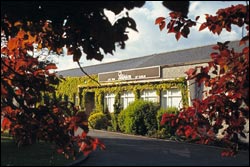
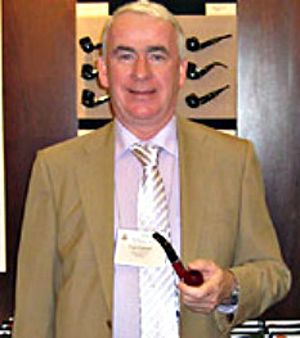
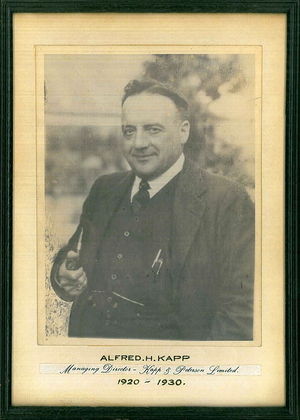
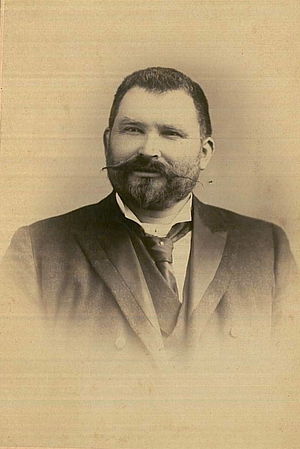
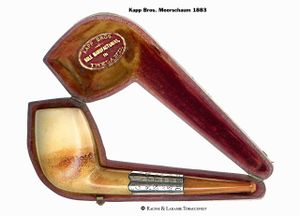
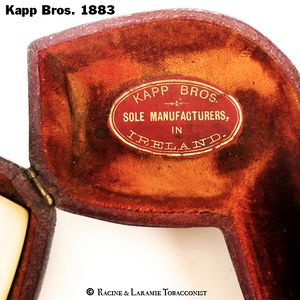
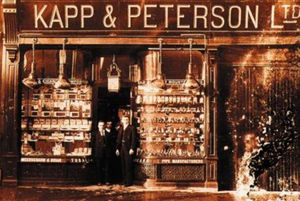
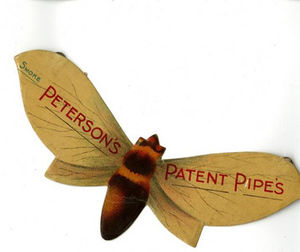
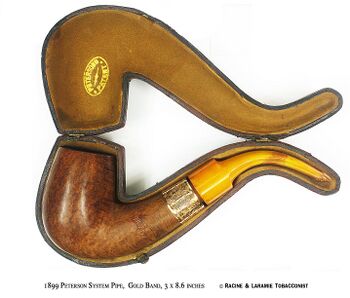
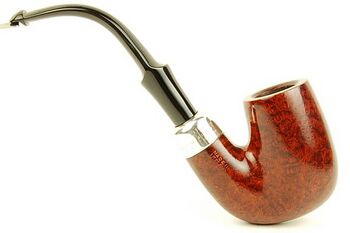
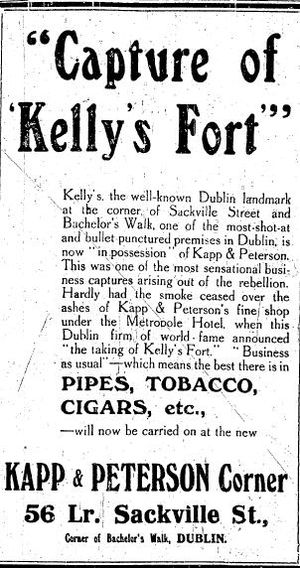
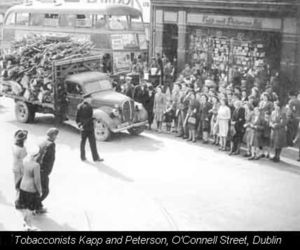
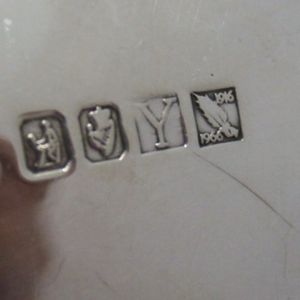
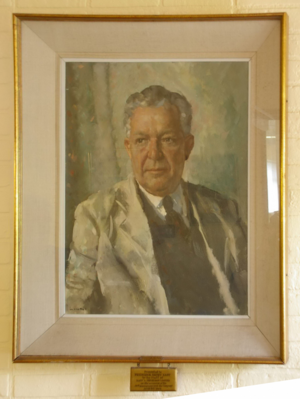

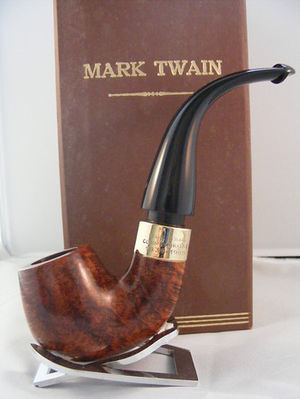
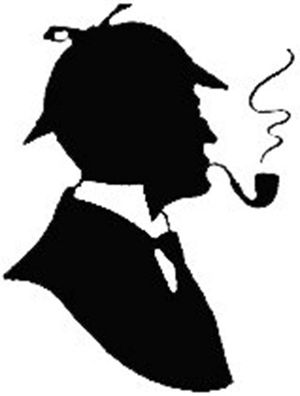
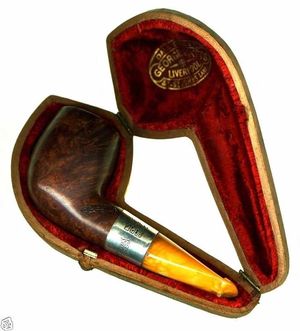
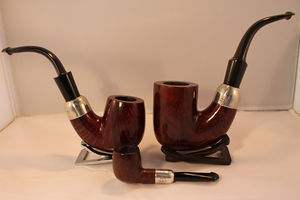
![1898 Lion Head Meerschaum, Courtesy Jim Lilley collection[2]](/images/thumb/8/84/1898LionMeer.JPG/277px-1898LionMeer.JPG)
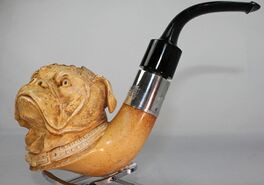
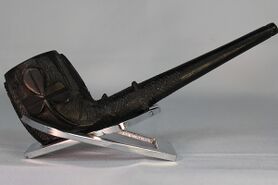
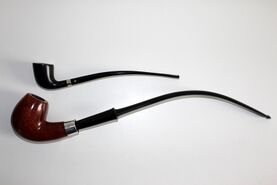
















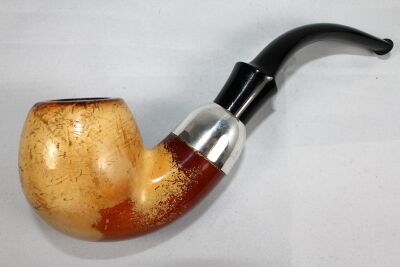
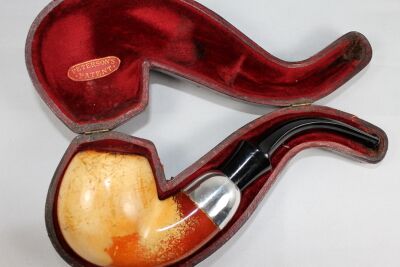
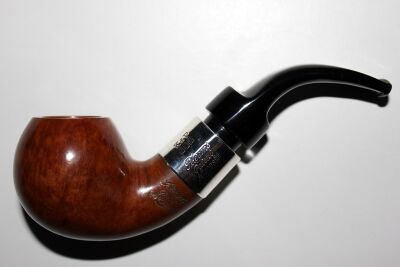
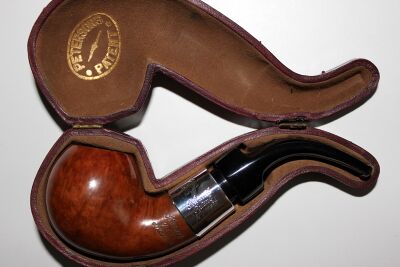
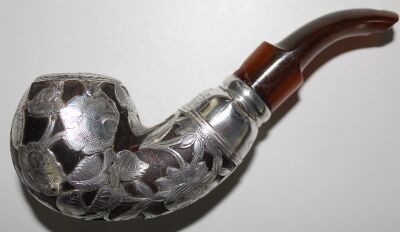
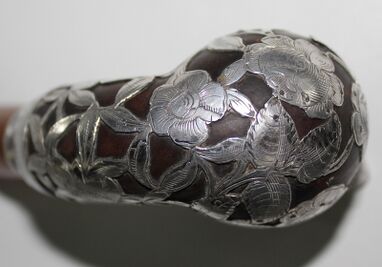
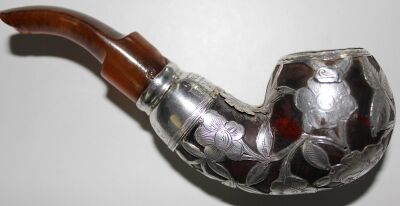
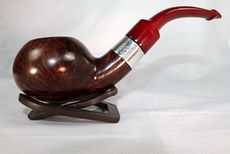
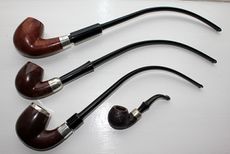
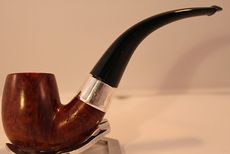
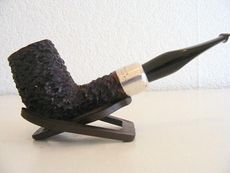
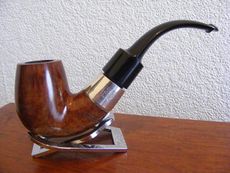
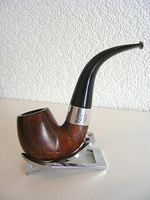
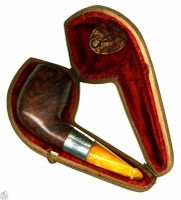
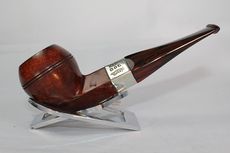
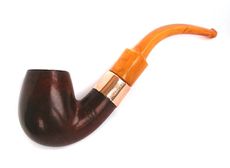
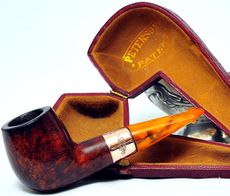
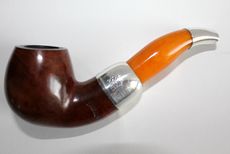
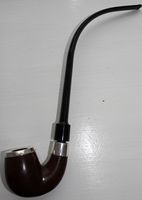
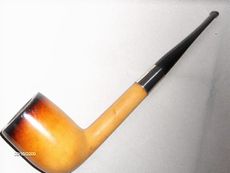
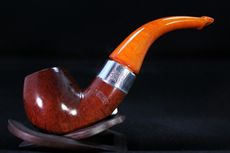
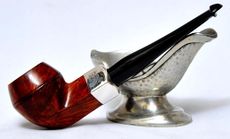
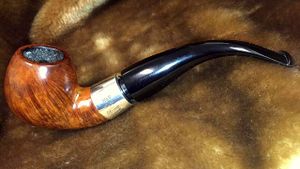
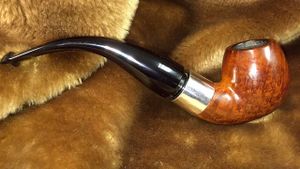
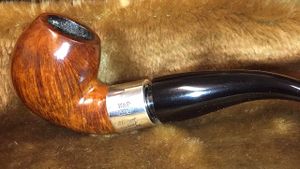
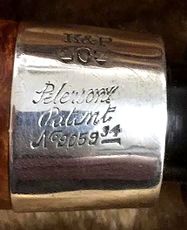
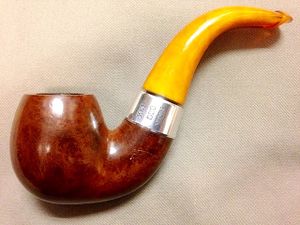
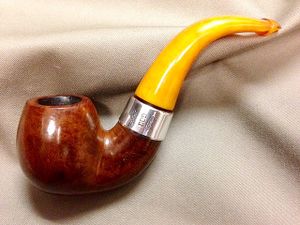
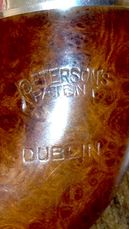
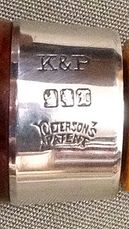
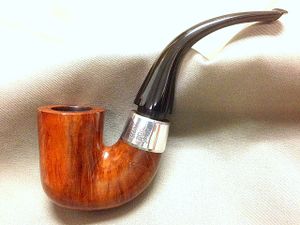
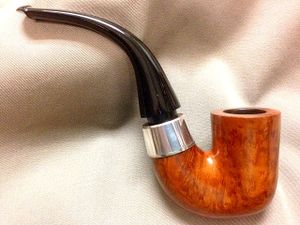
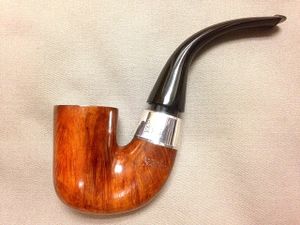
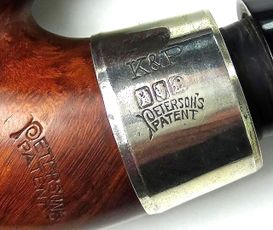
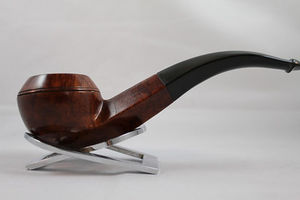
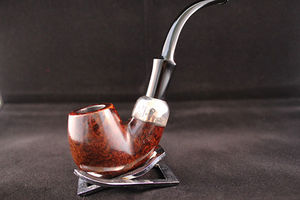
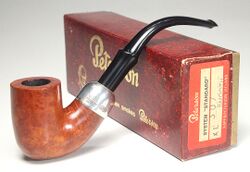
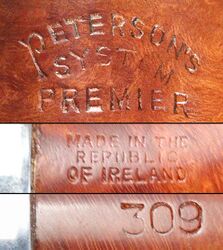
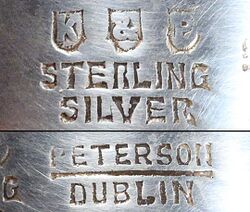
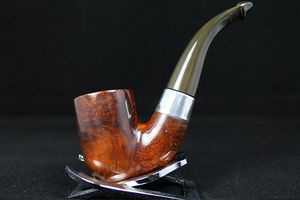
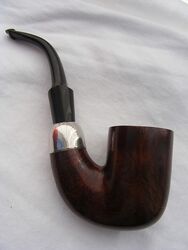
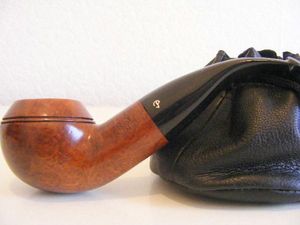
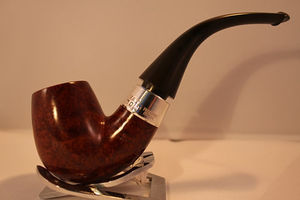
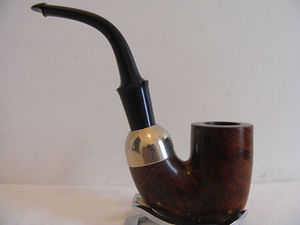
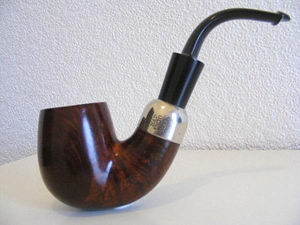
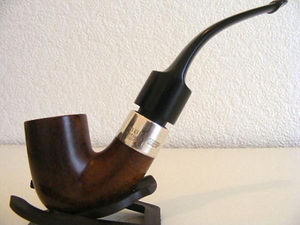
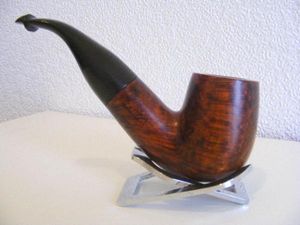
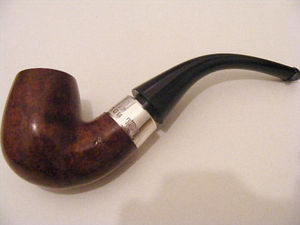
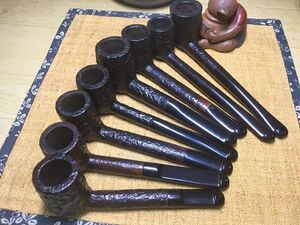
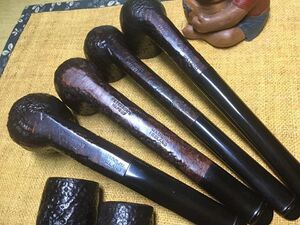
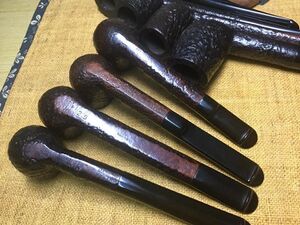
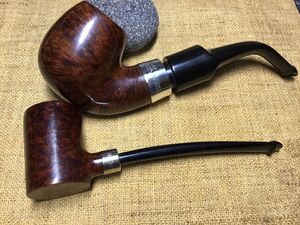
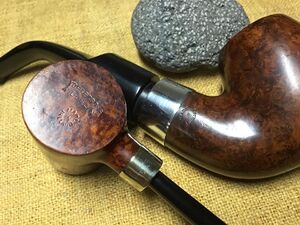
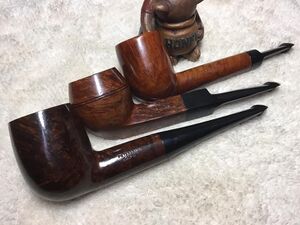
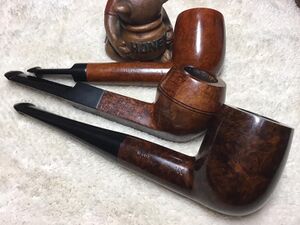
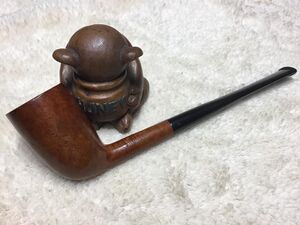
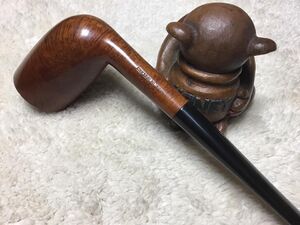
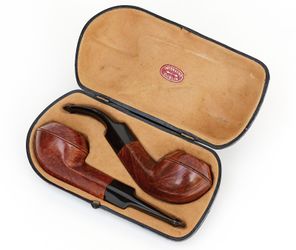
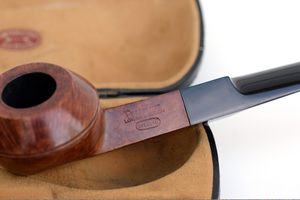
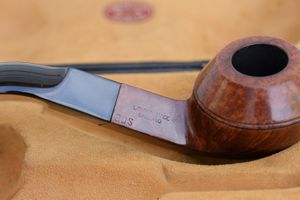
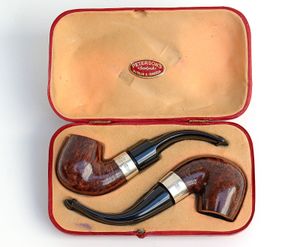
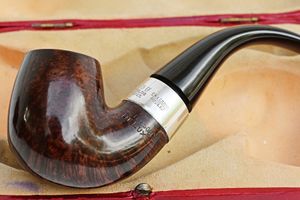
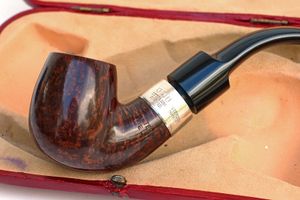
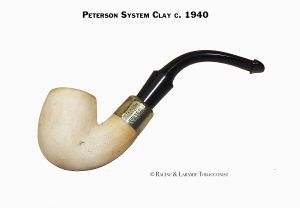
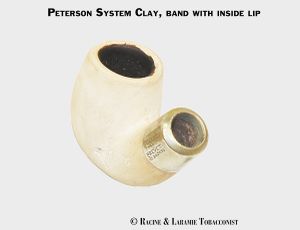
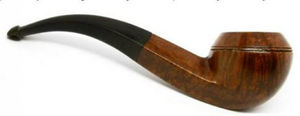
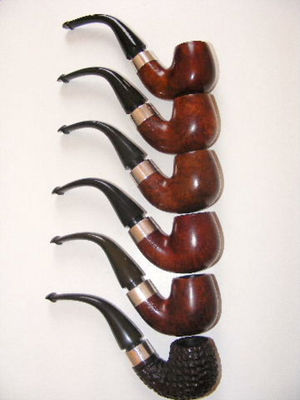
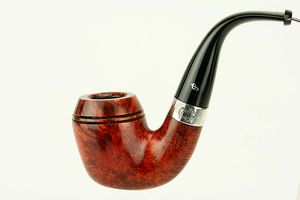
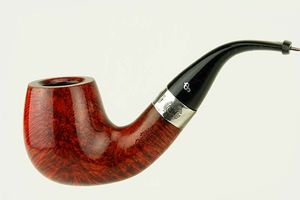
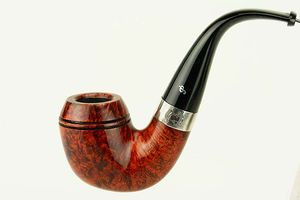
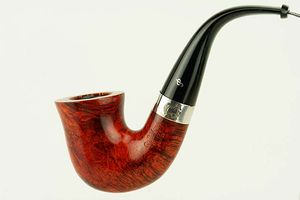
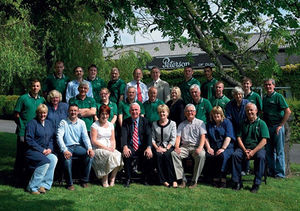
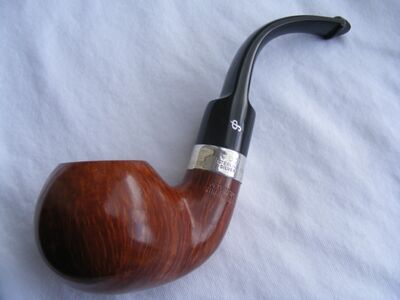
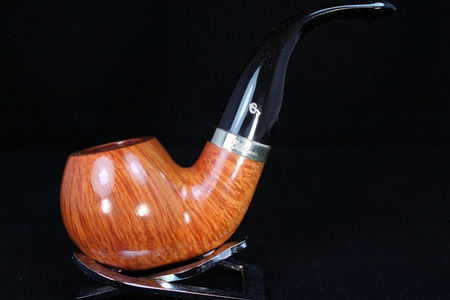
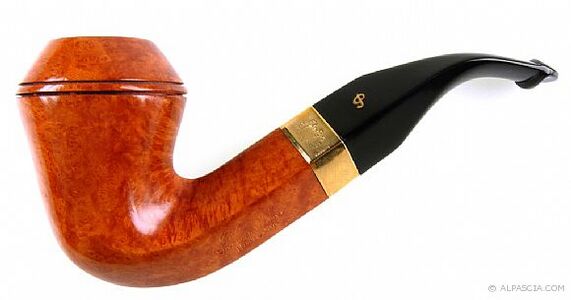
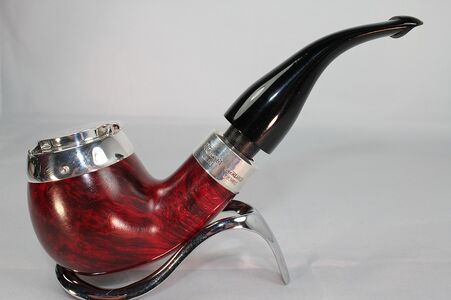
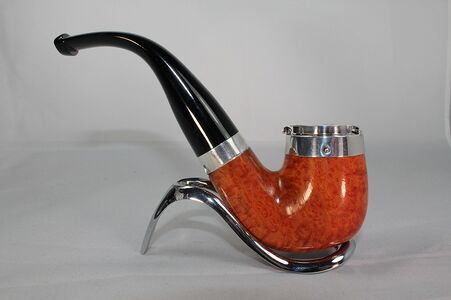
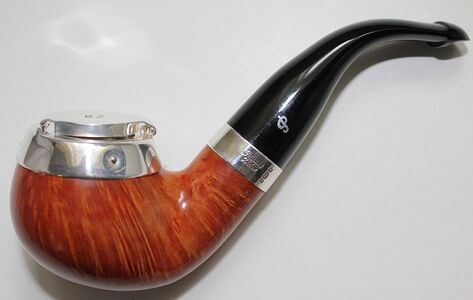
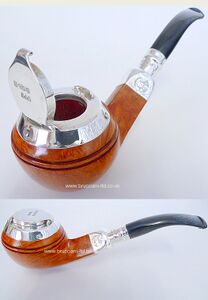
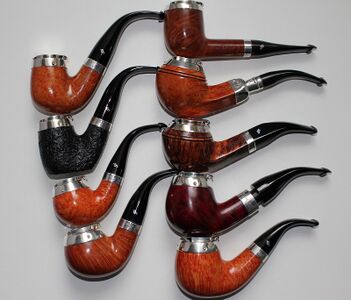
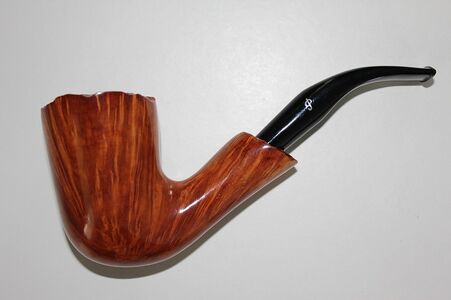
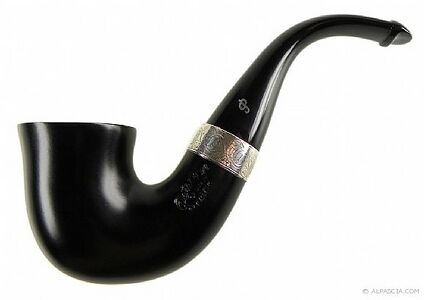
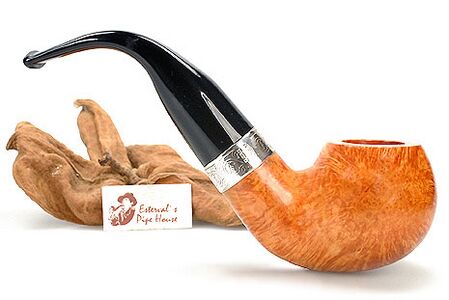
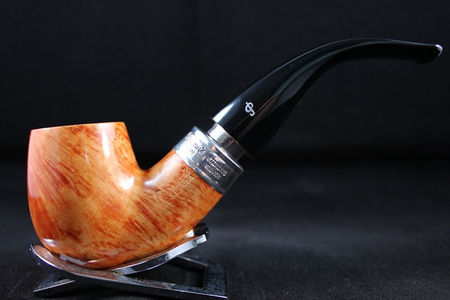
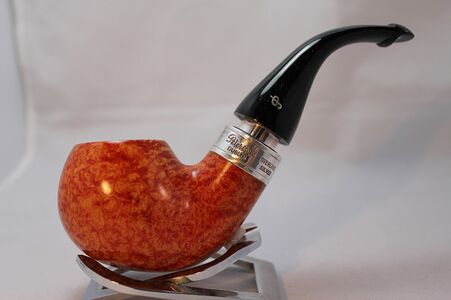
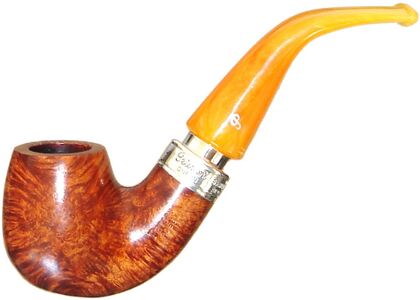
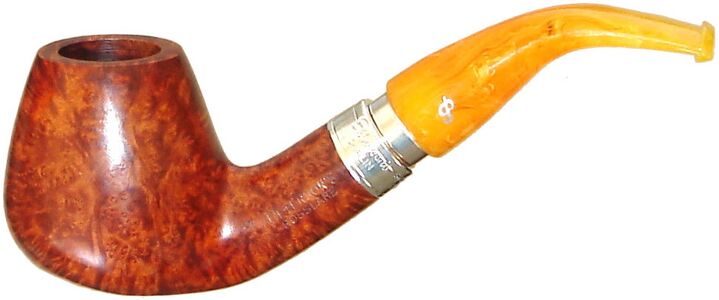
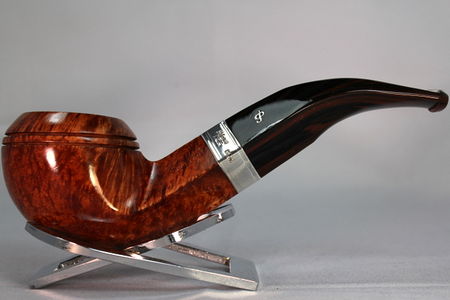
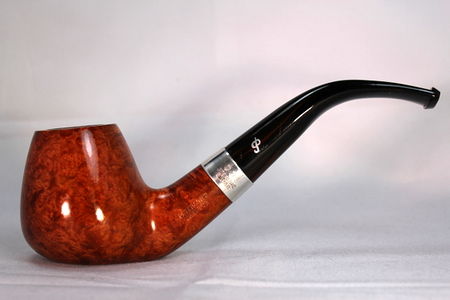
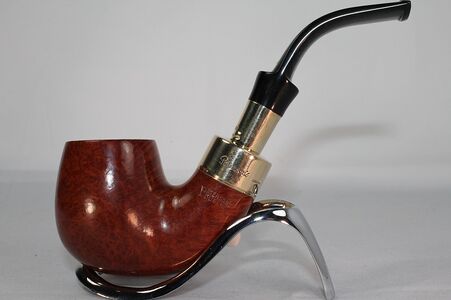
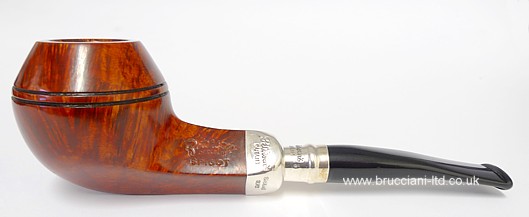
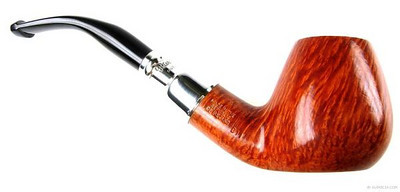
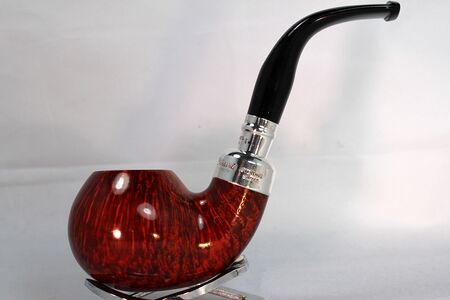
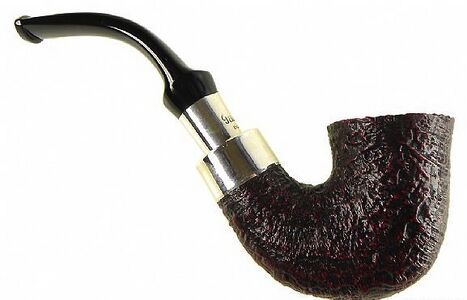
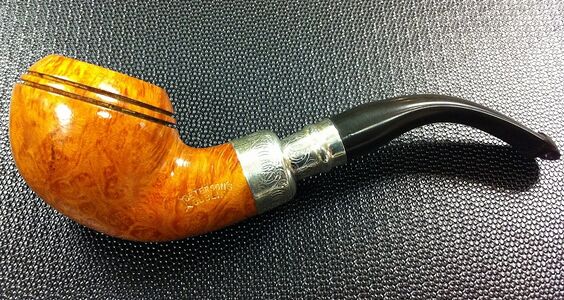
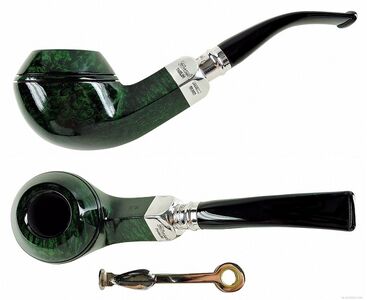
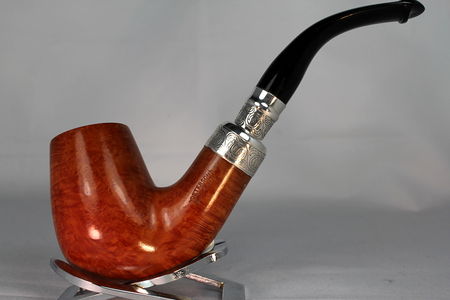
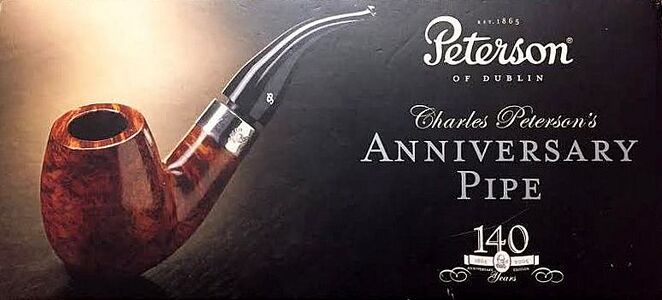
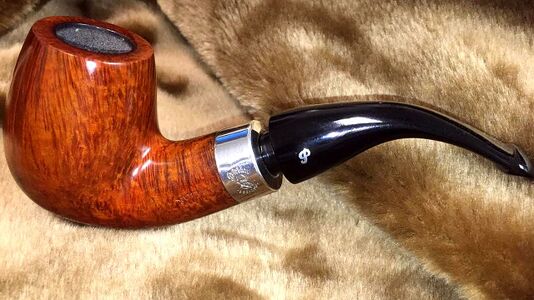
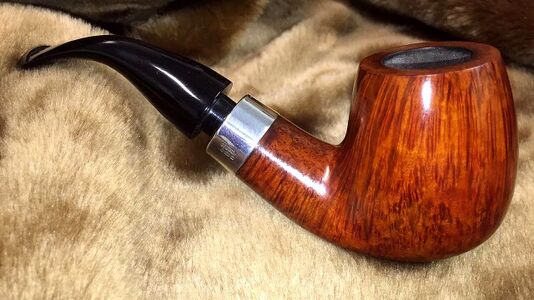
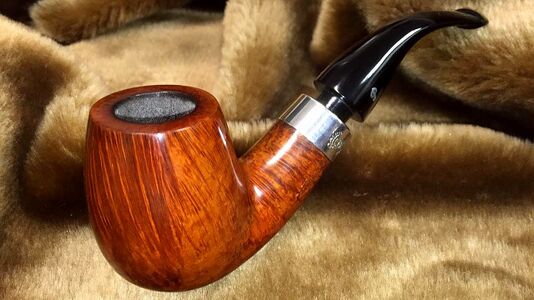
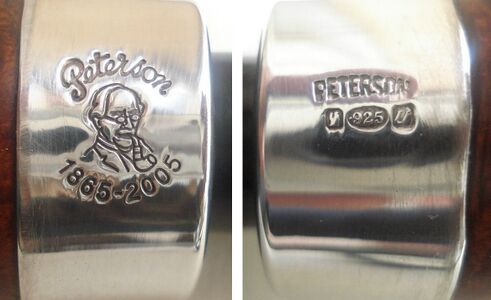
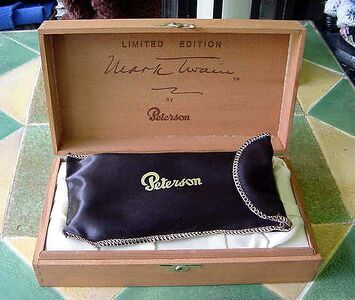
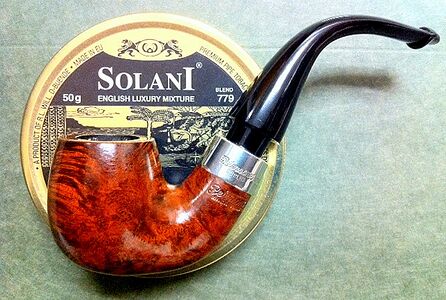
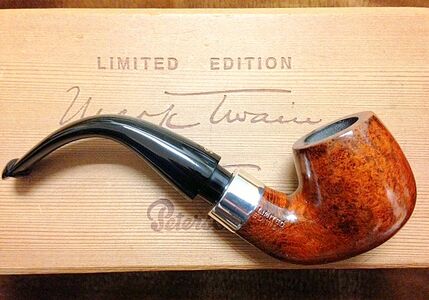
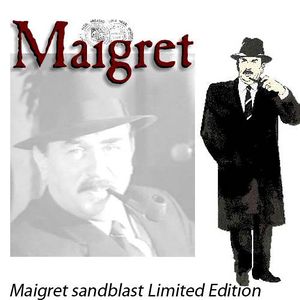
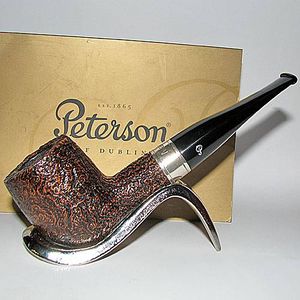
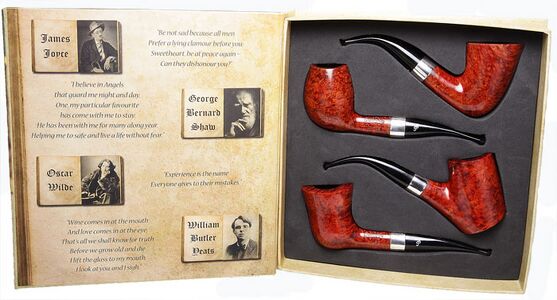
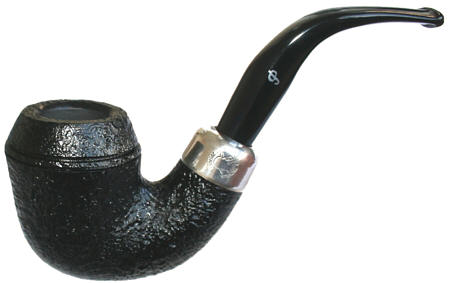
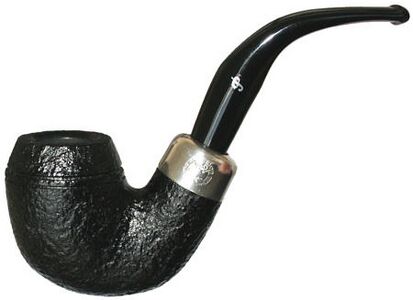
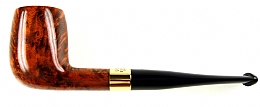
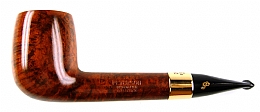
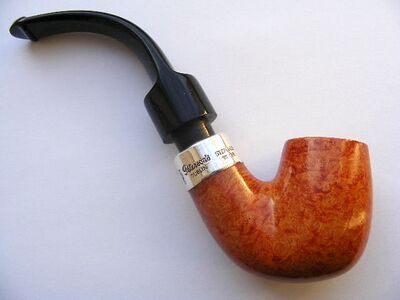
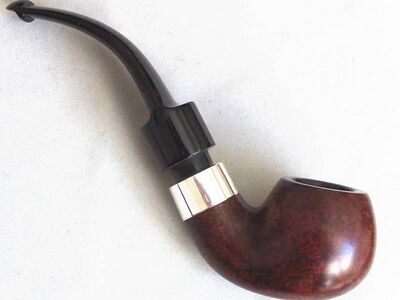
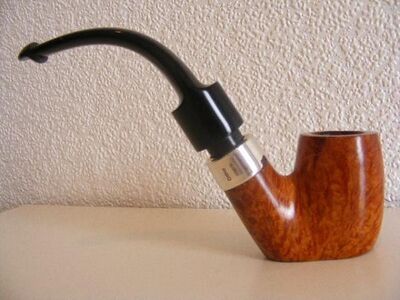
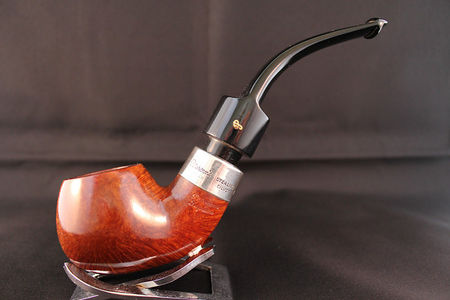
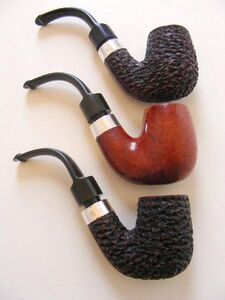
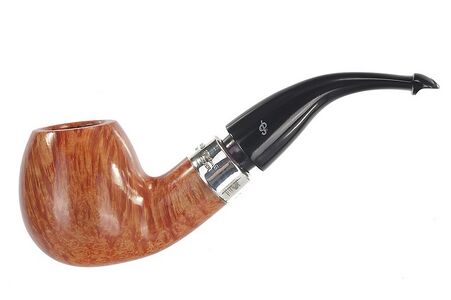
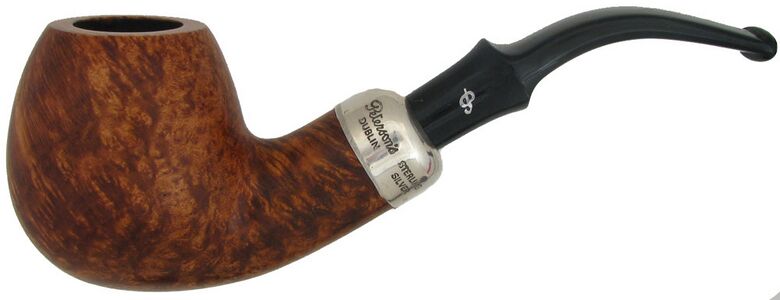
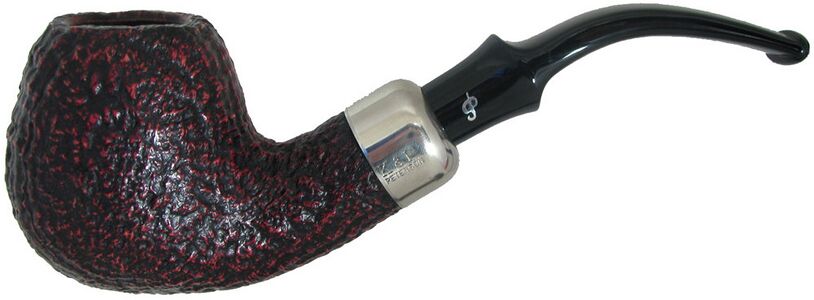
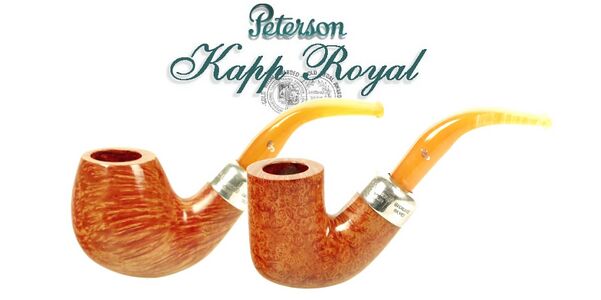
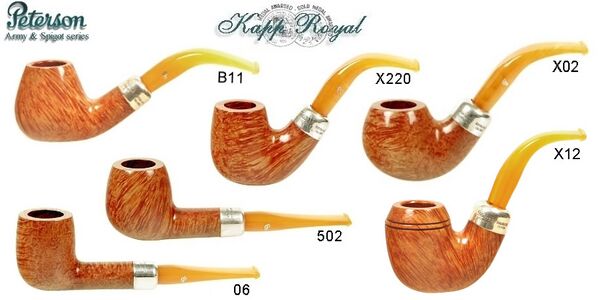
![2009 Christmas Pipe]]](/images/thumb/6/62/Pipedia36ChristmasPipe2009.jpg/225px-Pipedia36ChristmasPipe2009.jpg)
![2011 Christmas Pipe]]](/images/thumb/1/19/NewChirstmasPipe.jpg/212px-NewChirstmasPipe.jpg)
